
The Smallest Gallery in Soho 2017
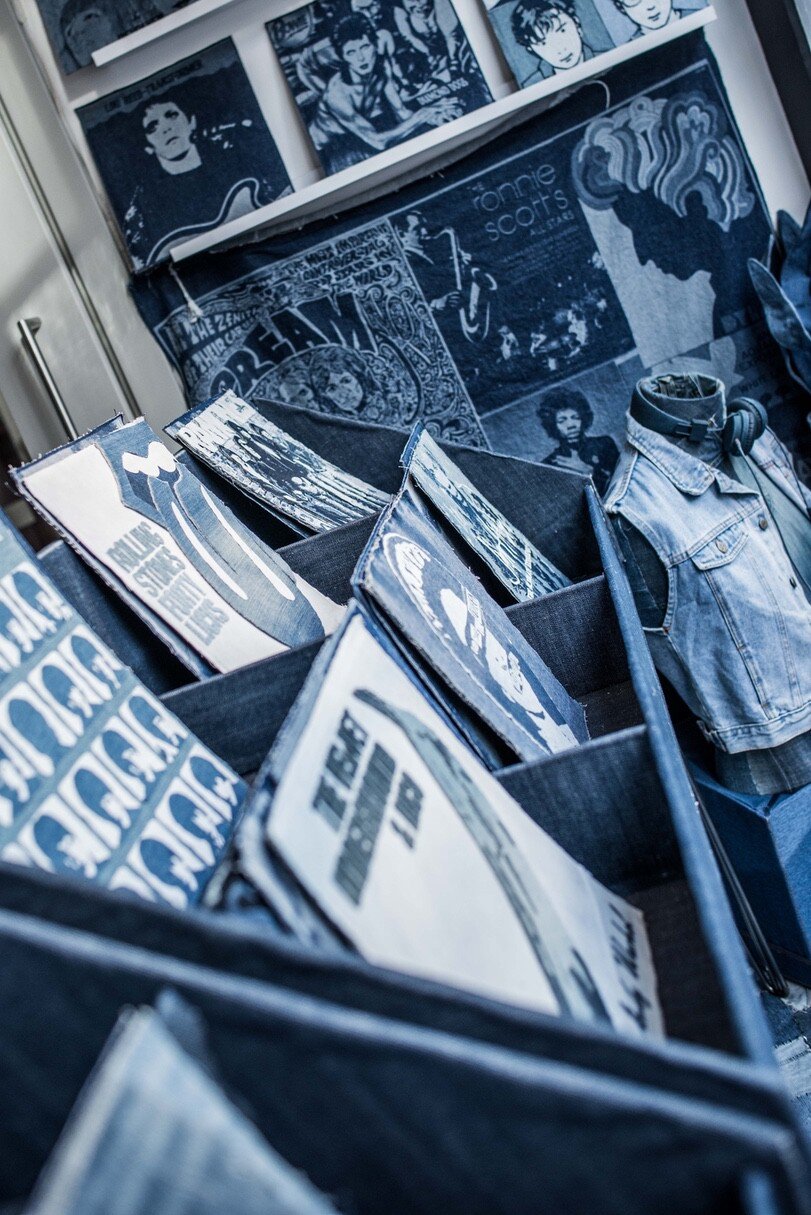
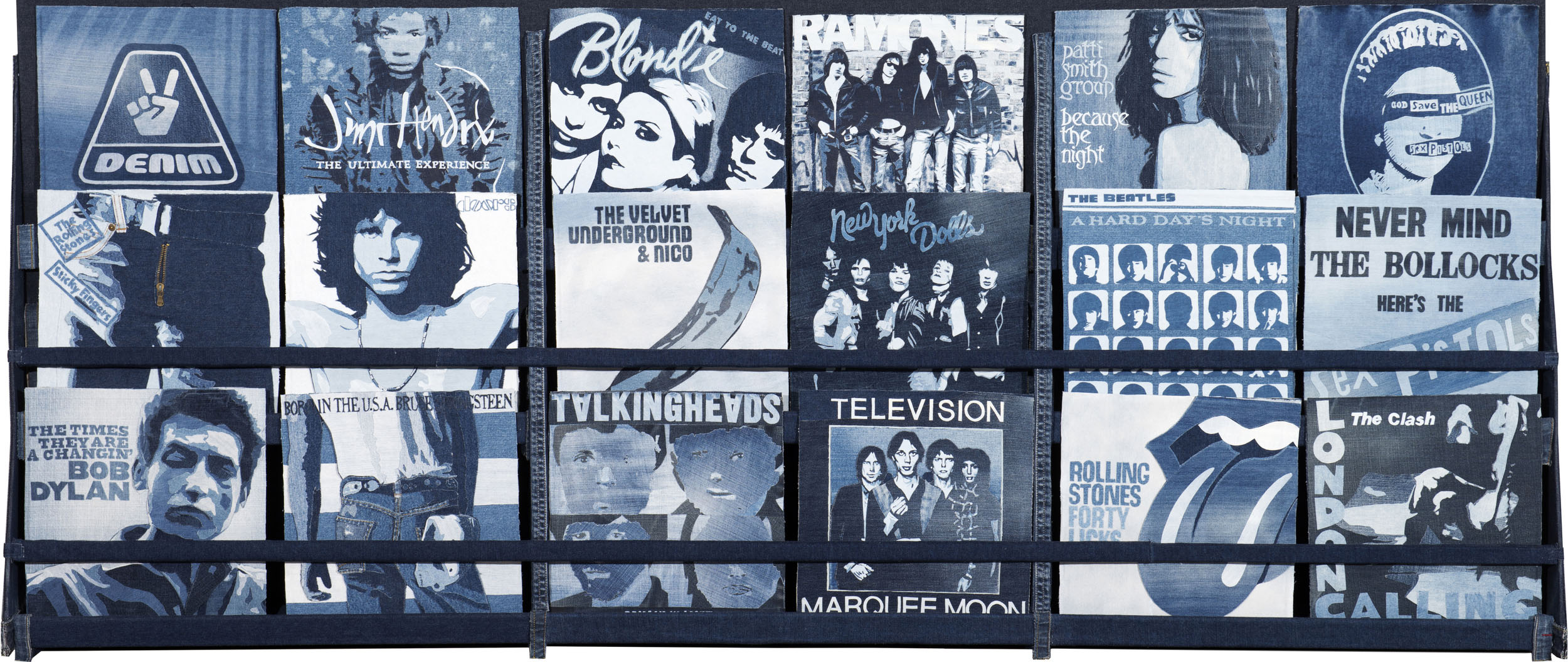
It’s impossible to imagine rock and roll music without denim. From Elvis to heavy metal, via Dylan, hippies and punk, the pioneers of youth music have always worn jeans. Indeed, some of the most cherished album covers of all time feature this artisan fabric: the Rolling Stones’ Sticky Fingers, and Bruce Springsteen’s Born in the USA to name just two.
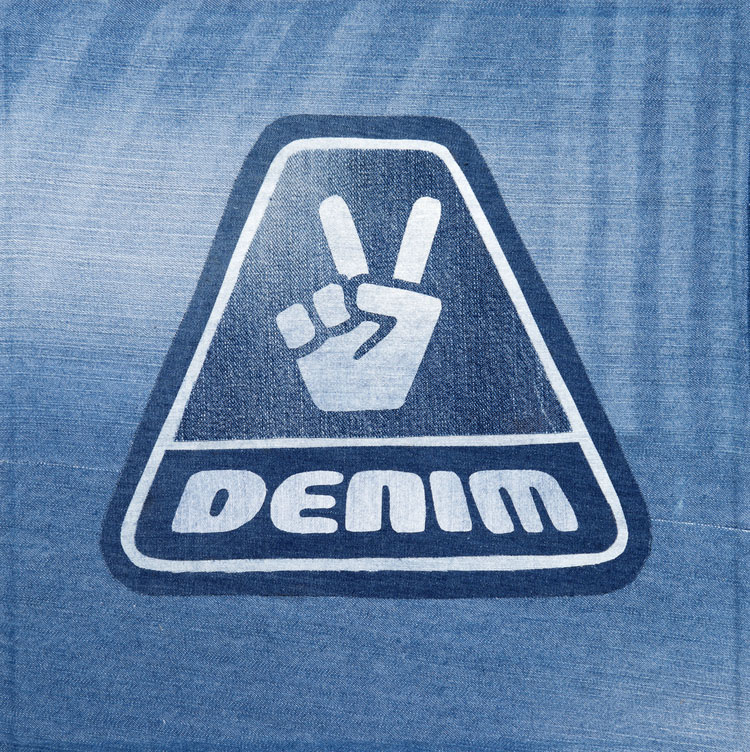
It was this link that Ian was particulary interested in not least as it really connected London and New York - the theme of Ian’s 2013 show. “I wish I was alive and in New York around this time, it feels so exciting, and everyone had an attitude of ‘we can do anything.’ They just did, whereas now, people just talk.”
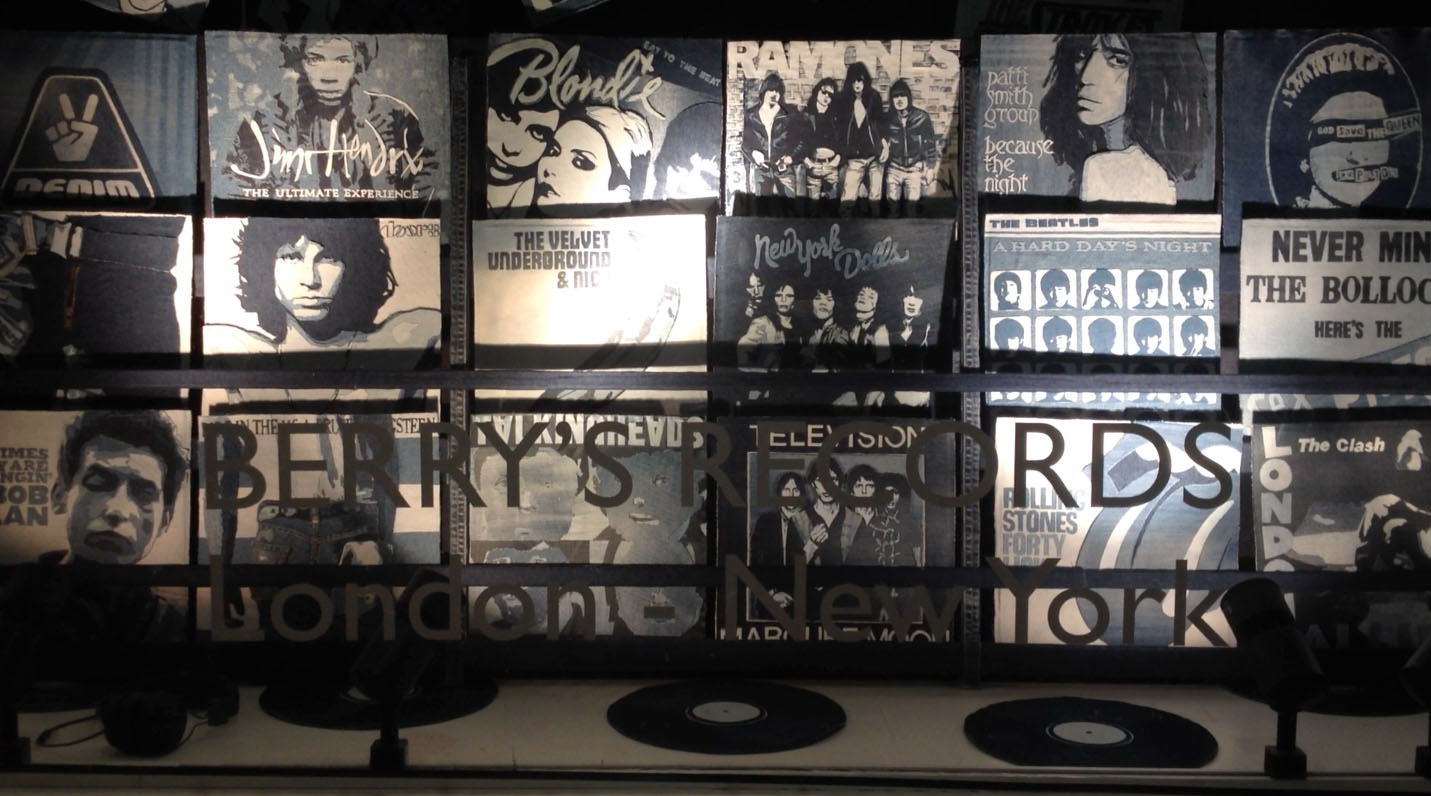
2013
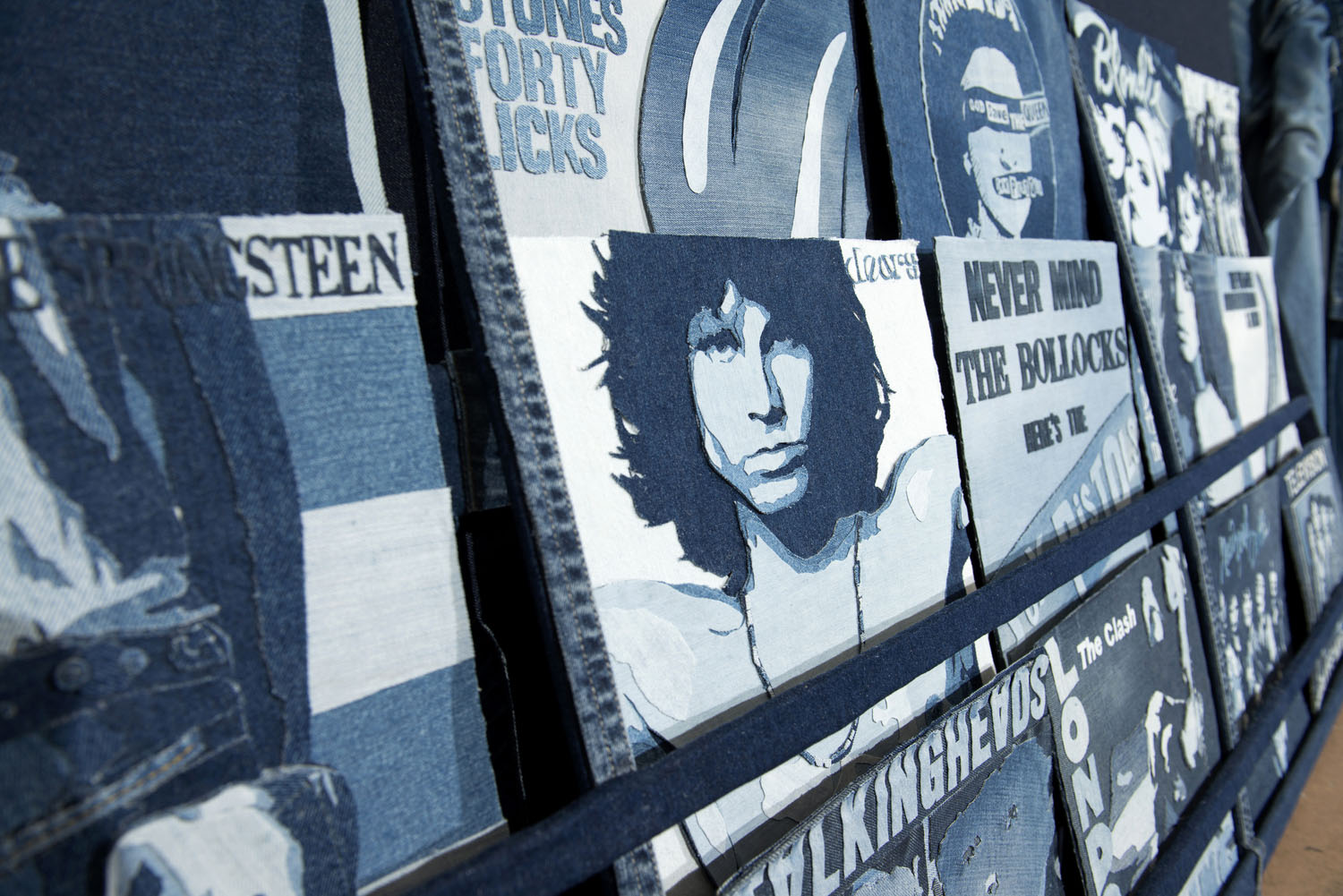
Sometimes, denim has helped define an era. In 1975, for example, the musicians who hung around a New York bar called CBGB started to crop their hair and rip their jeans. The look was spotted by musician and designer Malcolm McLaren, who adapted it into punk, and it changed the world.
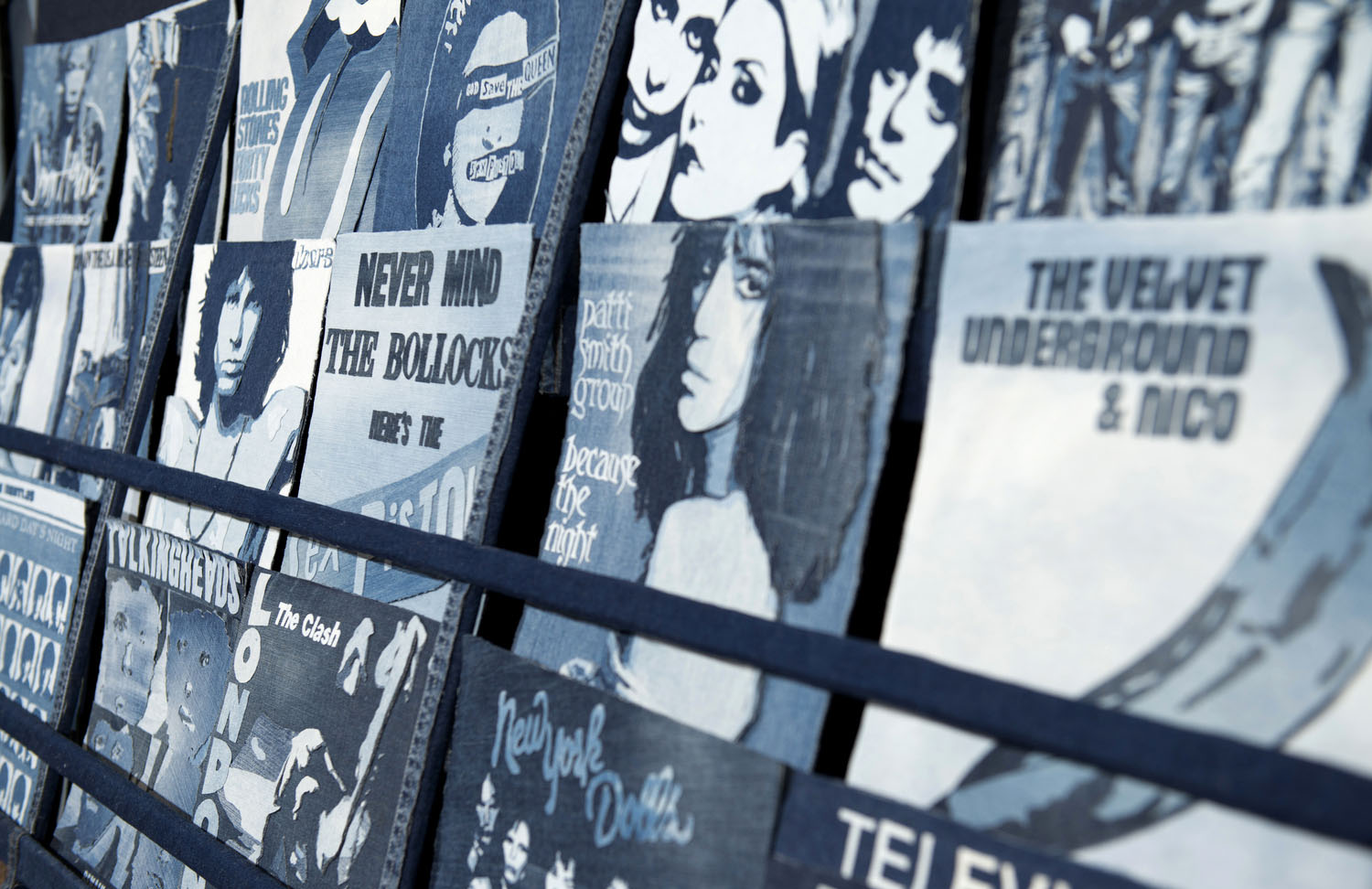
It was a bassist, Richard Hell, in the band Television who sparked the onset of punk denim style when he paired his cropped hair with a combination of ripped t-shirts and jeans. This was quickly spotted by Malcolm McLaren, who was over in New York to revive the New York Dolls’ act. Indeed, he was so taken with this distressed aesthetic that he worked with Vivienne Westwood in her King’s Road shop to not only replicate, but also expand it. This experimentation was also carried forward into the next band he managed - The Sex Pistols.
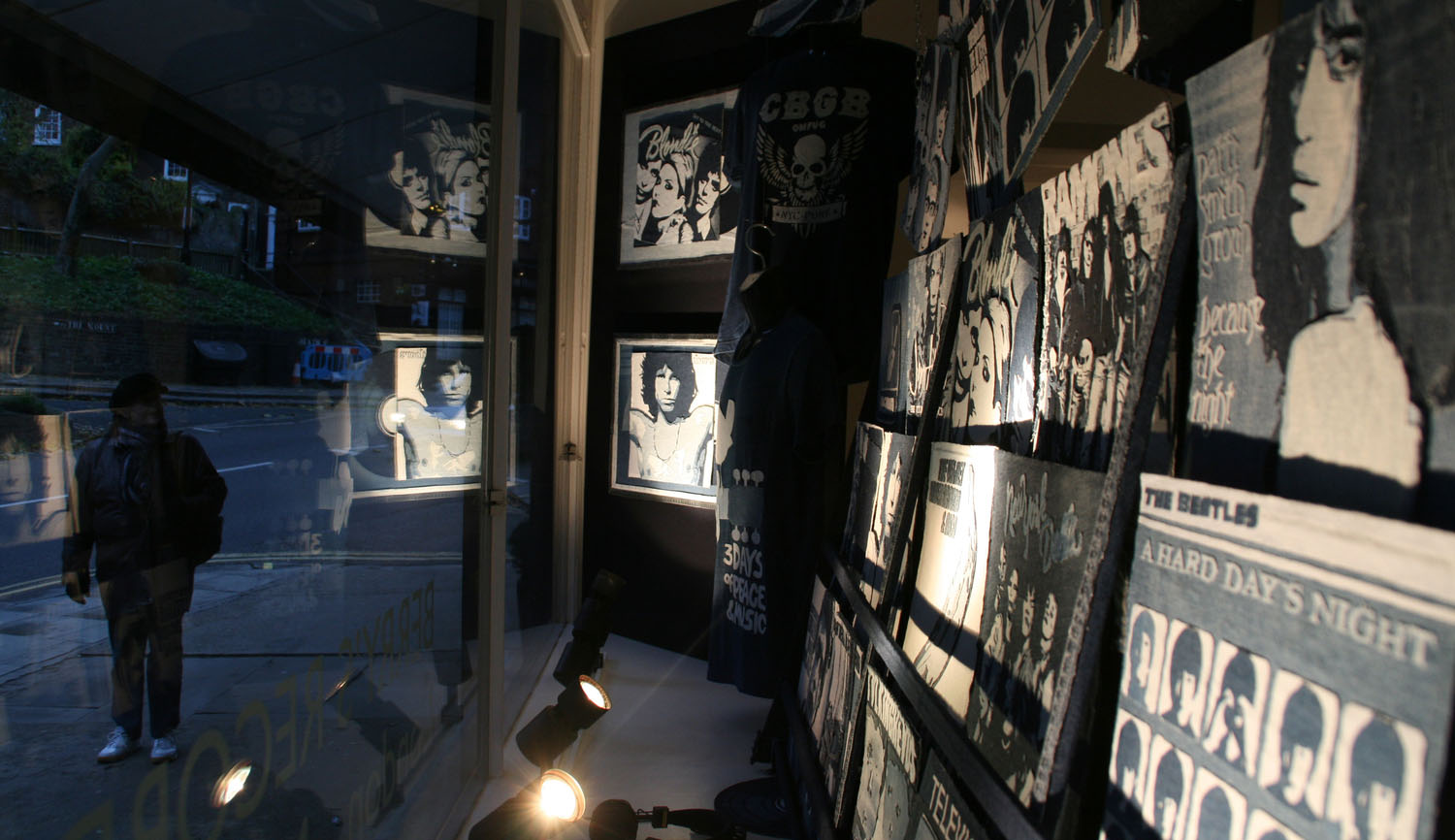
The Doors also began to adopt this style, albeit in a stripped down fashion. Their manager Danny Fields, a mainstay of Andy Warhol’s Factory scene, saw another band, The Ramones, play in a Bowery basement sporting another incarnation of this rapidly spreading ripped denim look.

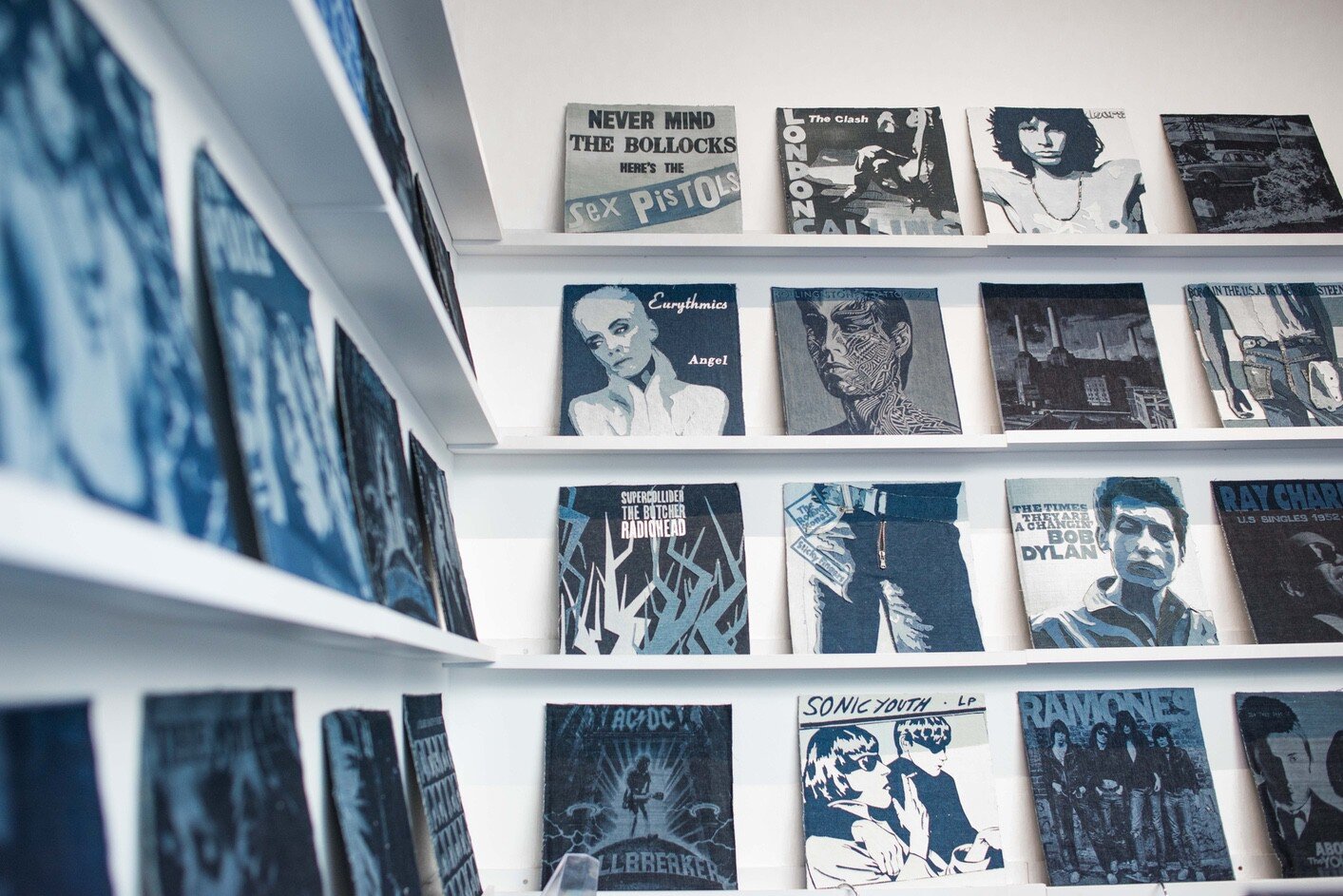
In the heart of London’s music district this display in Soho.
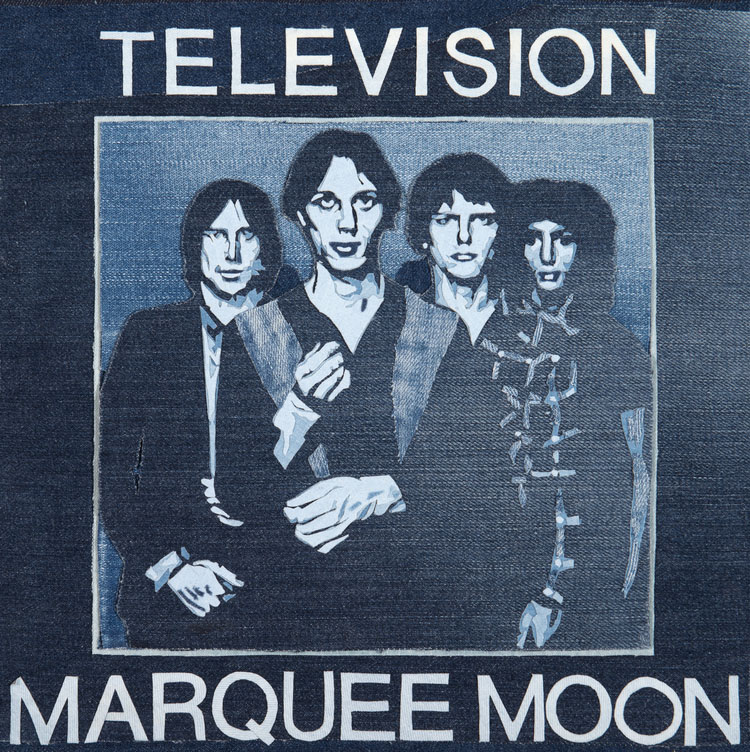
As well as the simple, ferocious nature of their music and stage presence, he was equally struck by their style: “It was perfect, classic. What better than jeans, a black leather jacket, and a white t-shirt? It’s an easy and enduring look and costume that any kid in the world can create. It’s the way you face the street. It’s male, it’s beautiful, it’s tough and it doesn’t date. Probably 50 years from now people will still be wearing black leather jackets and jeans.”
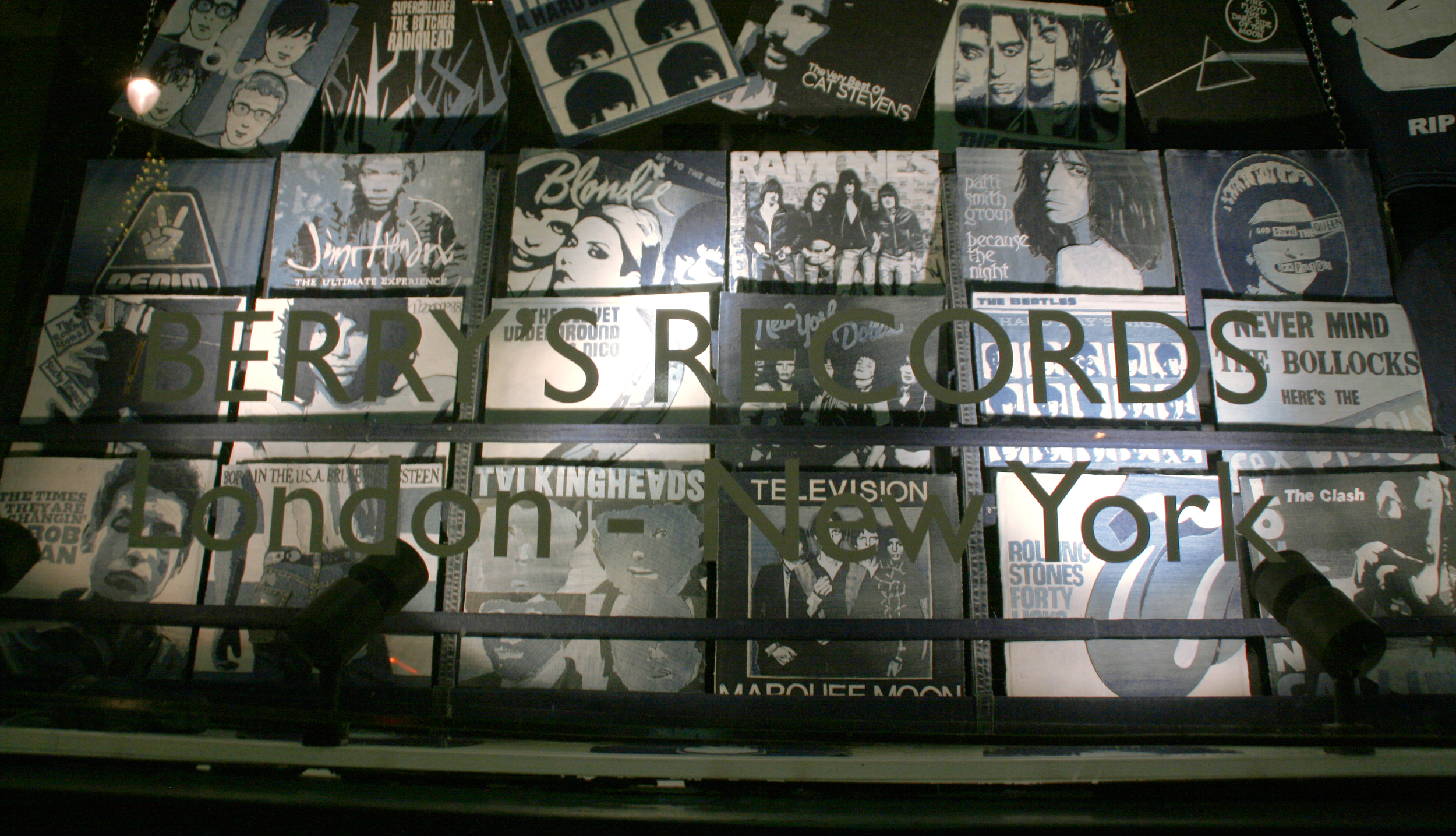
Warhol said of the fabric: “I wish I could invent something like blue jeans. Something to be remembered for.” Of course, he went on to design the jeans close-up cover for the Stones’ Sticky Fingers album.
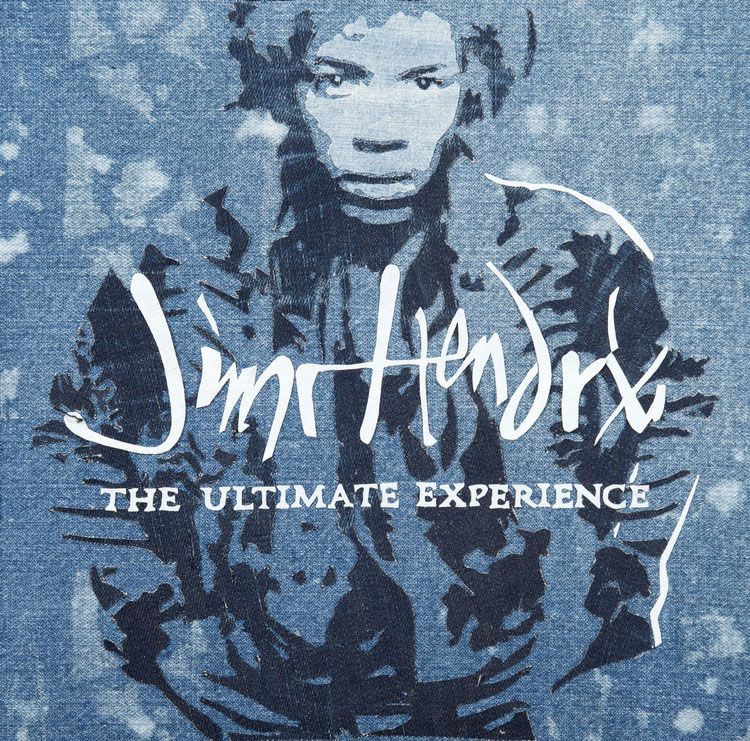
With his Record Store installation, Ian Berry celebrates this marriage of denim and rock history. He also makes a personal tribute to the heyday of the vinyl album. The work highlights the struggling retail sector, impacted by the digital download age and recent recession, which has changed the face of music retail on the high street.
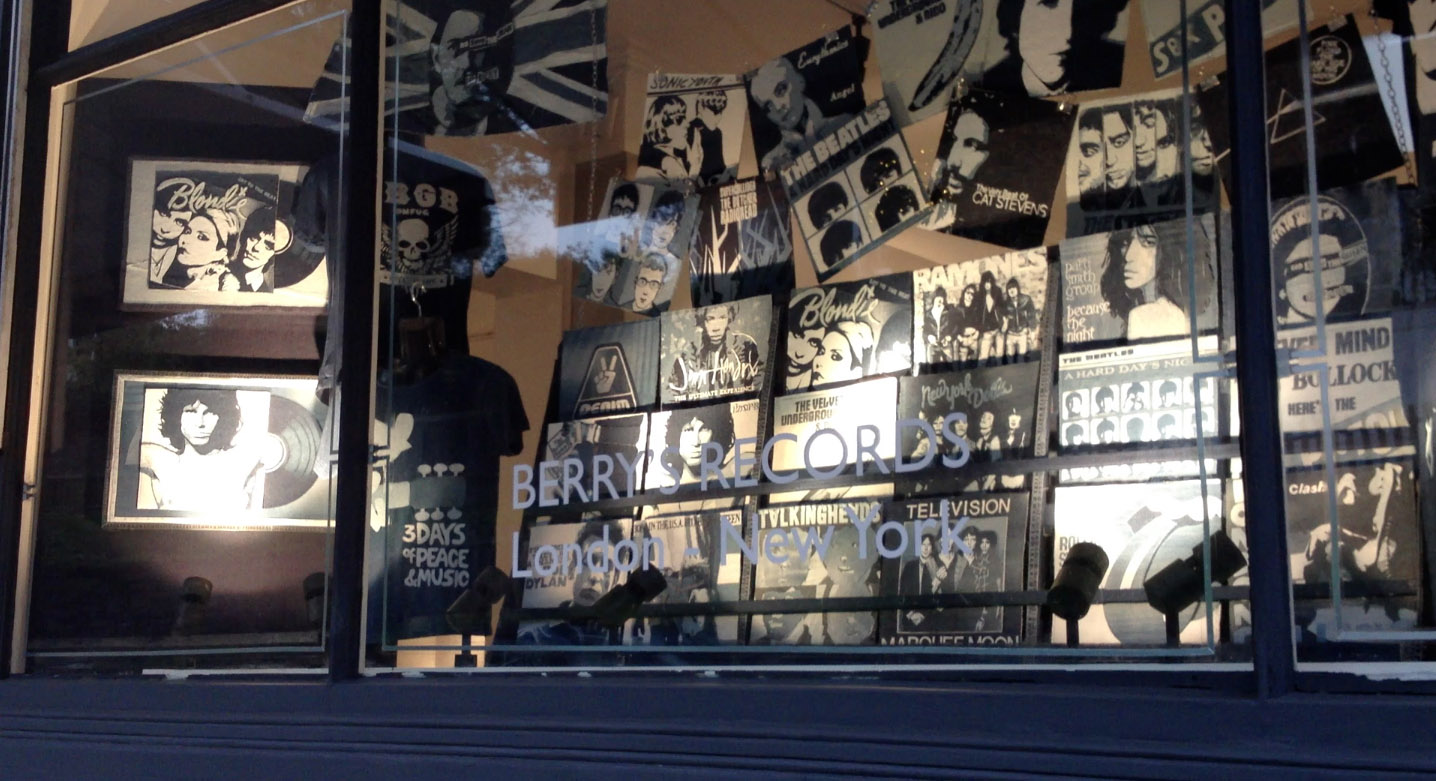
His work lovingly recreates a display of classic LPs that had a heavy influence both on what music is today, and denim - from obvious links with bands who used denim in their album cover design, and to Woodstock where it was said:
There were only two ways to look cool at Woodstock: wear your jeans or go naked.
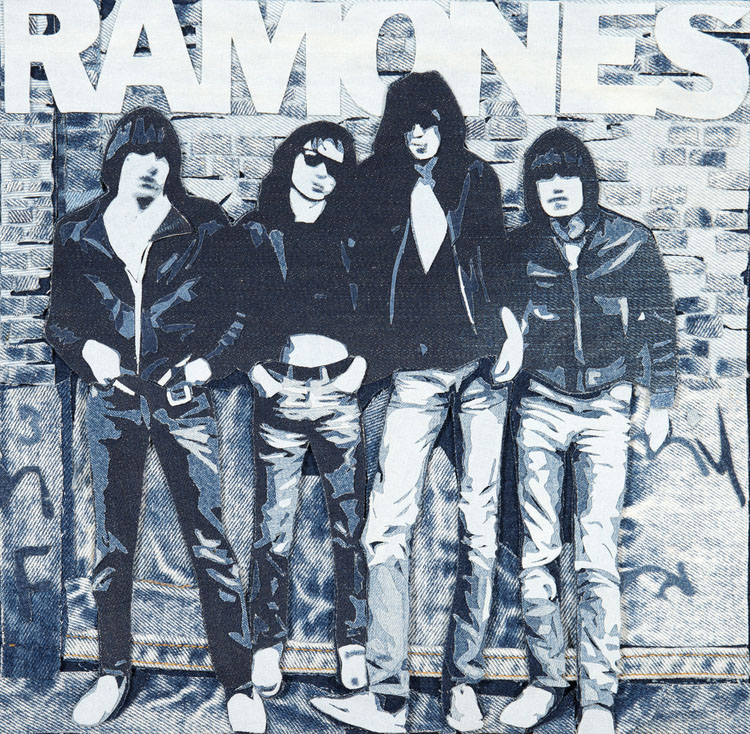
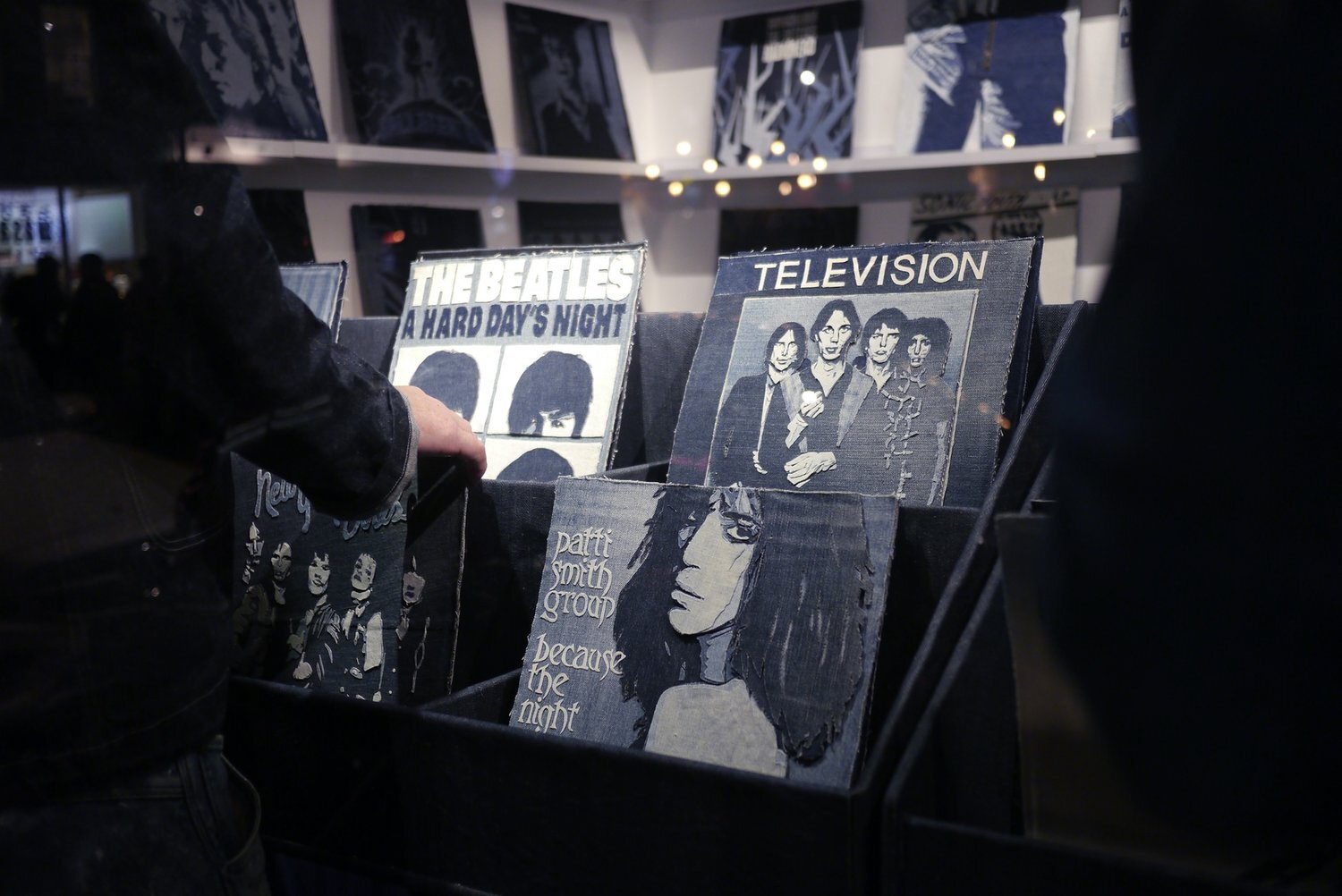
photo | Sadia Rafique
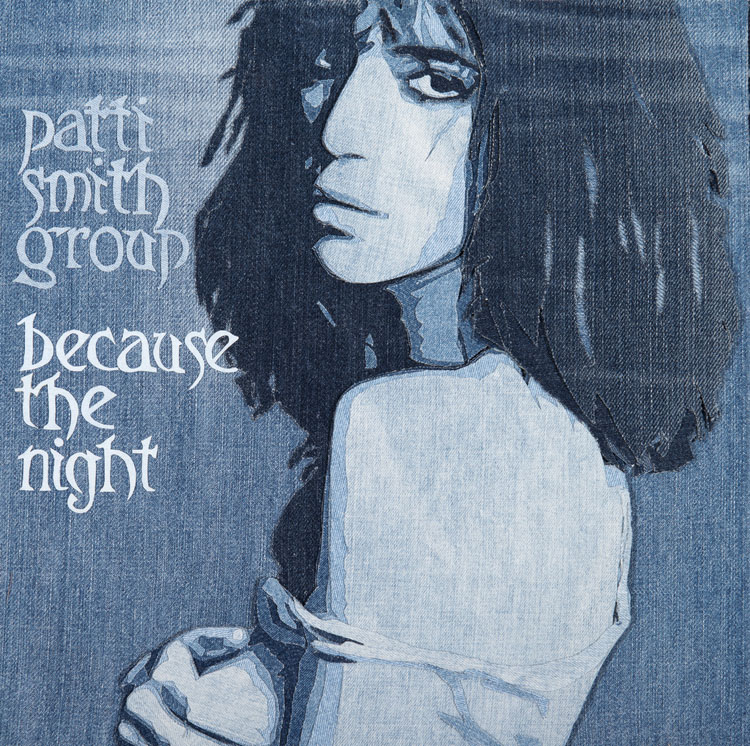

You can see part of the Record Store being put together in this little film in Ian’s studio.
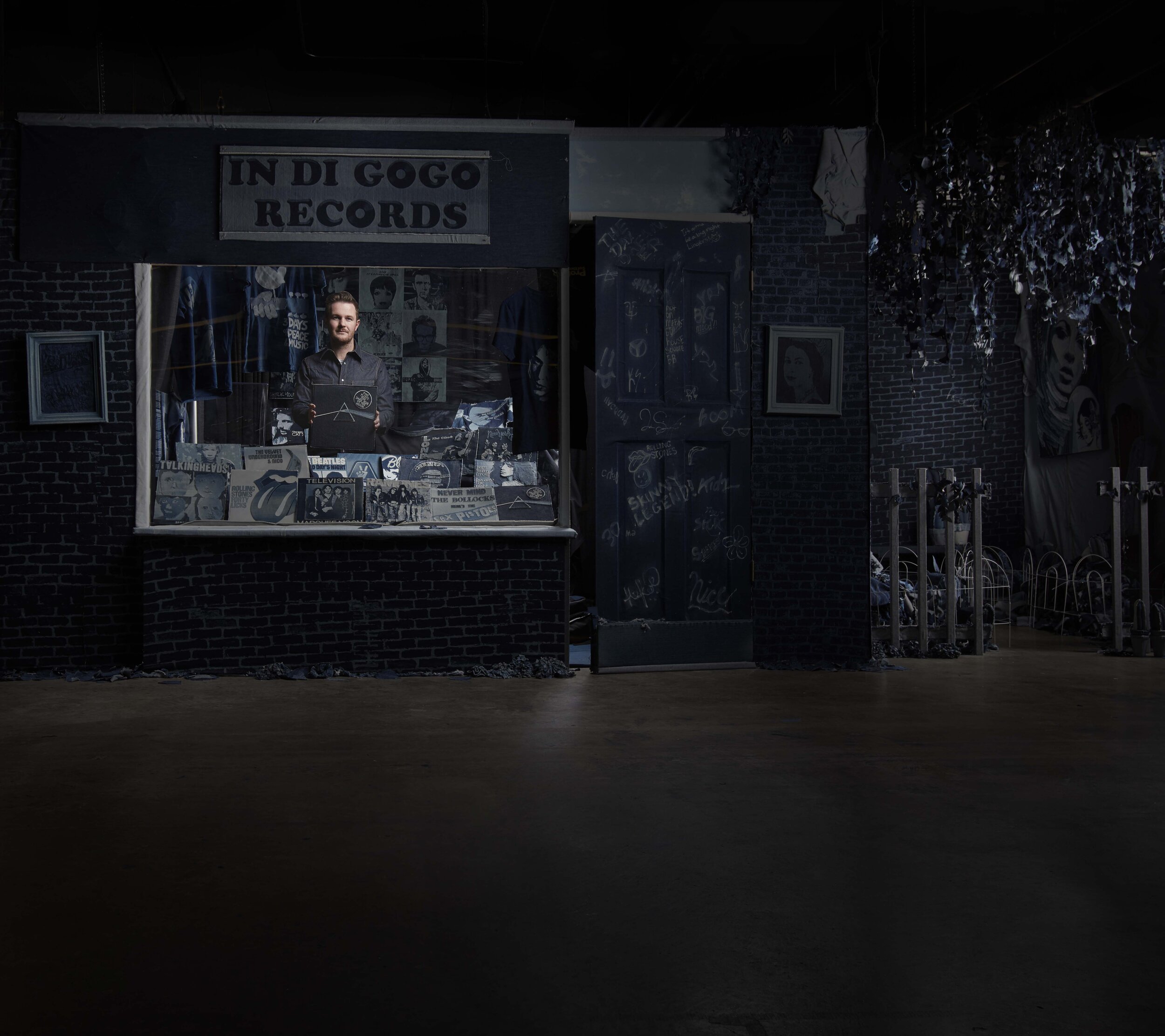
Photo | Brad Rankin
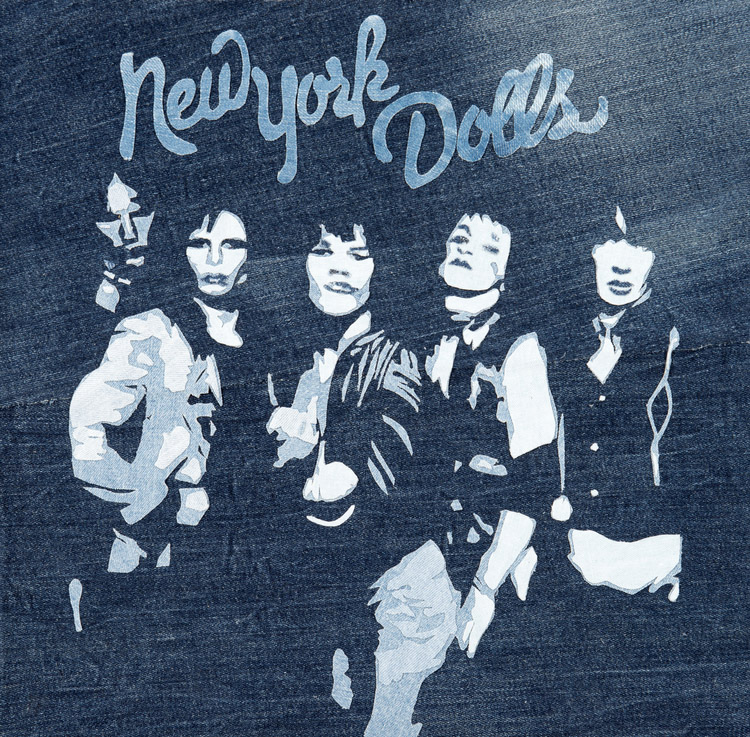
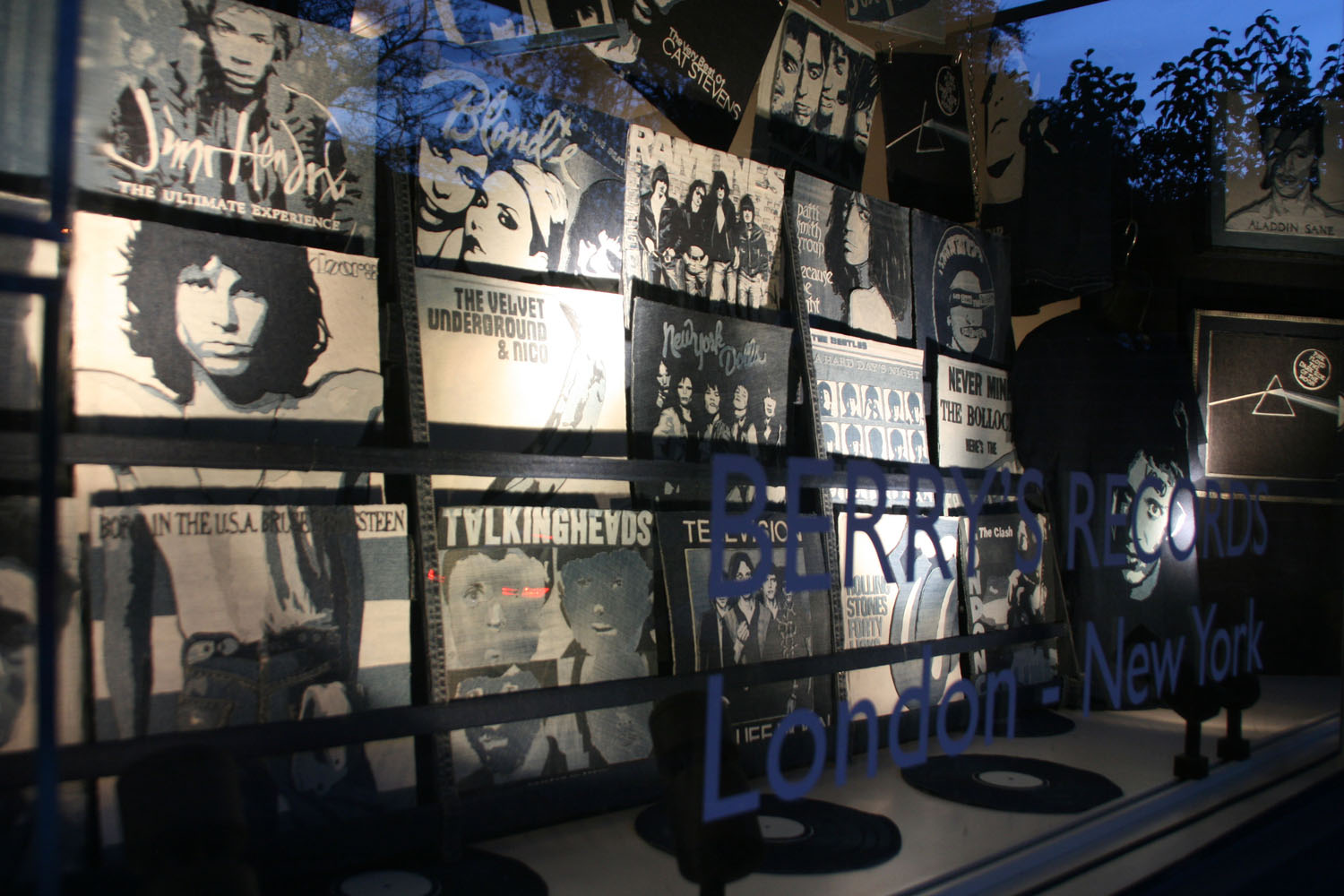
2013
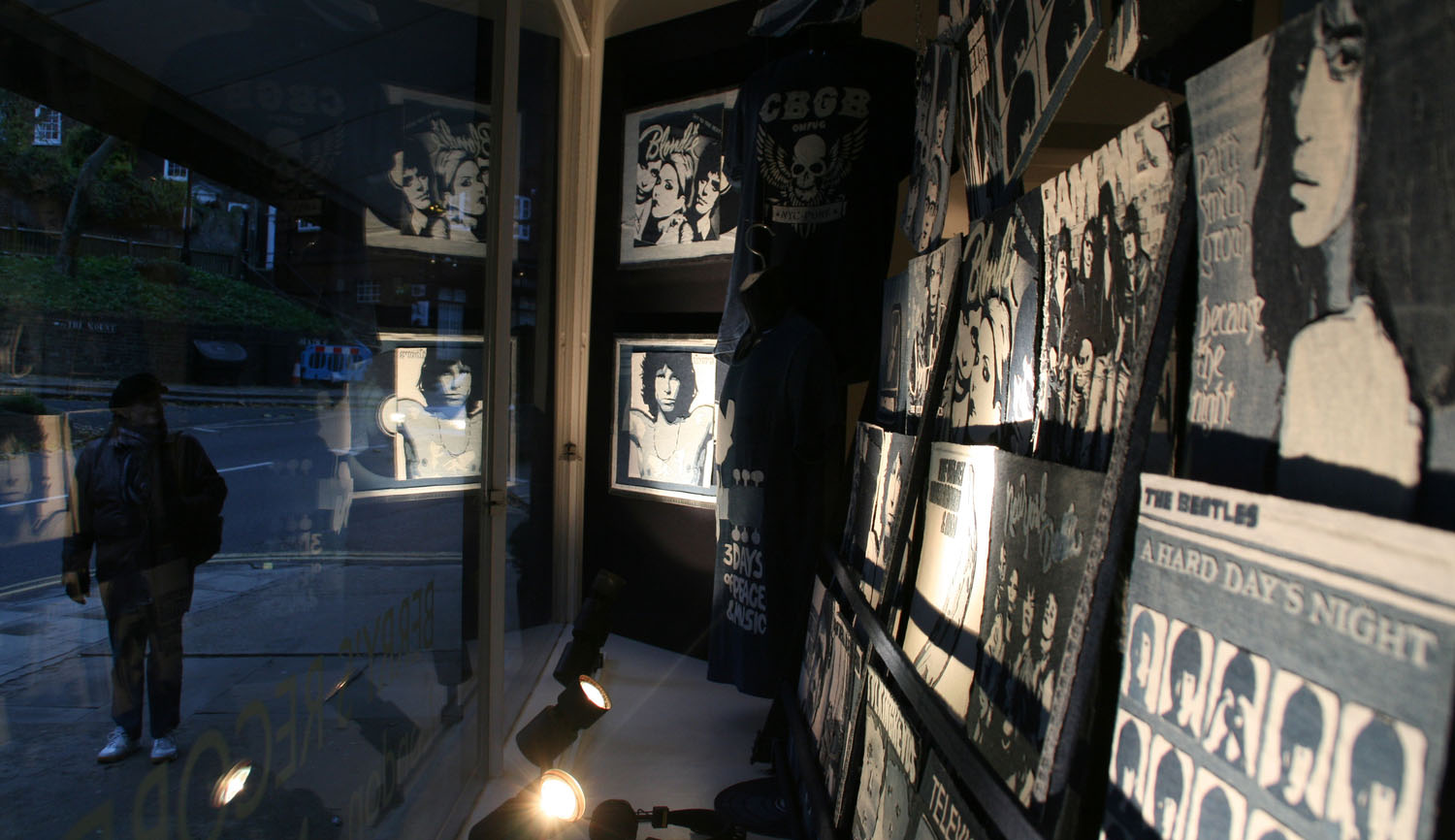
2013
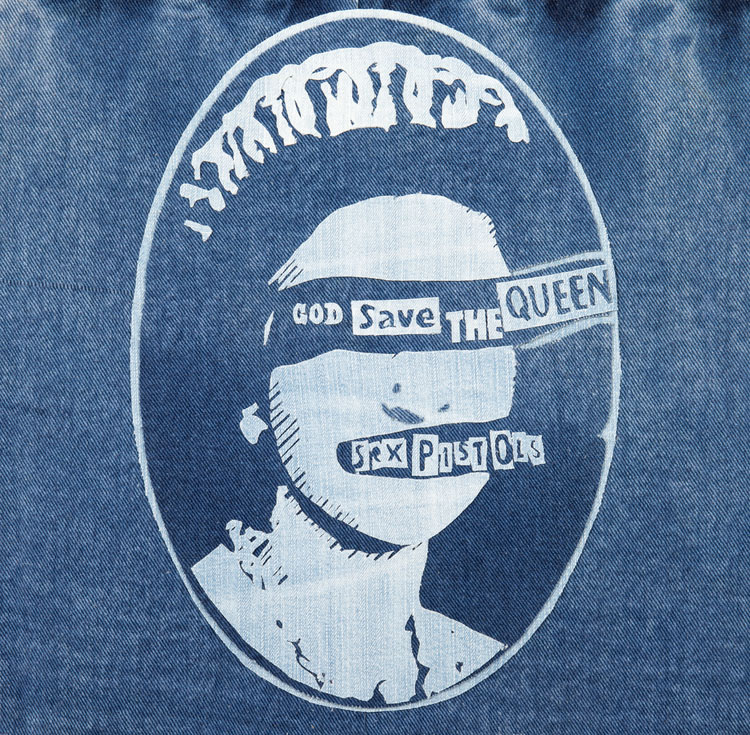
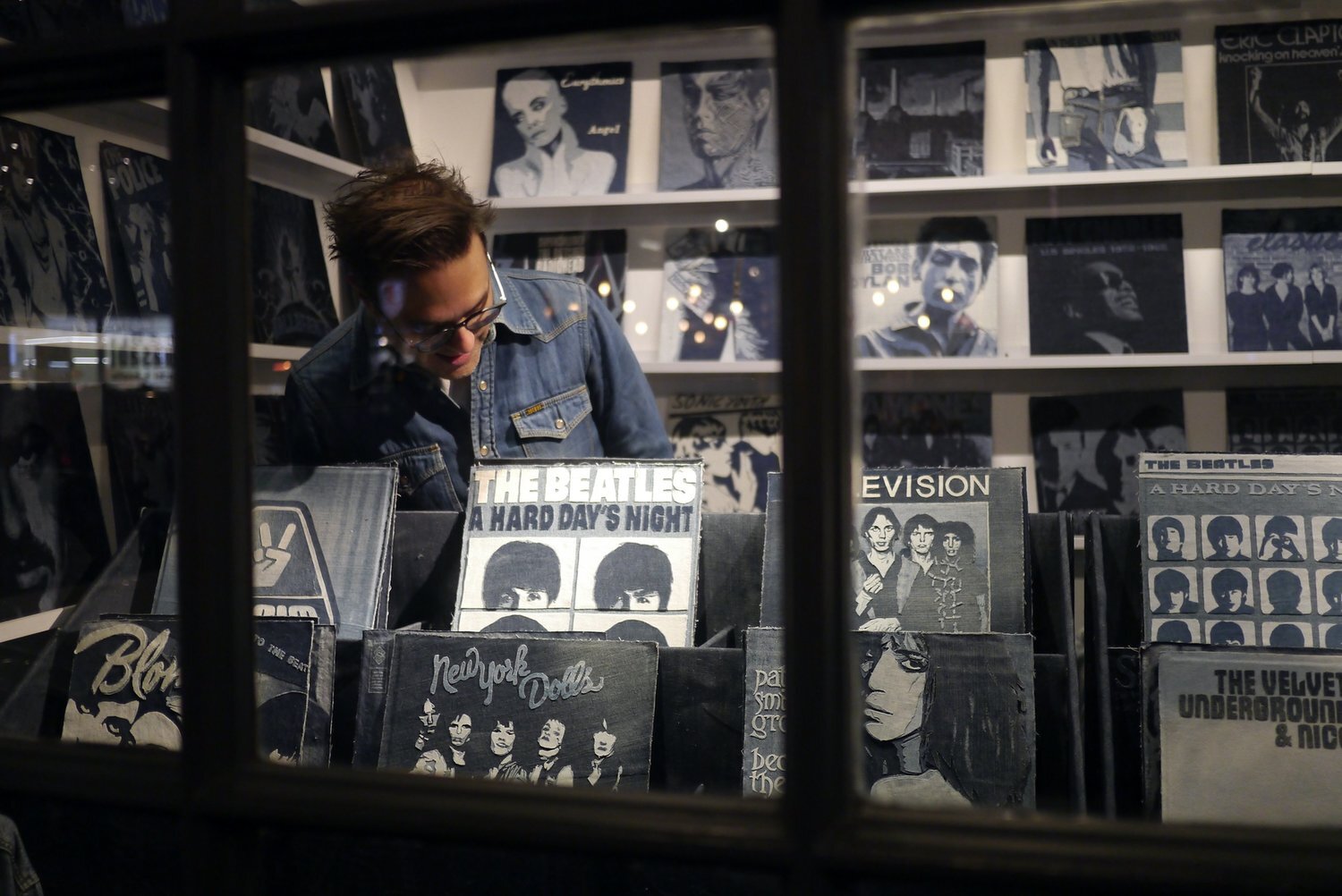
photo | Sadia Rafique
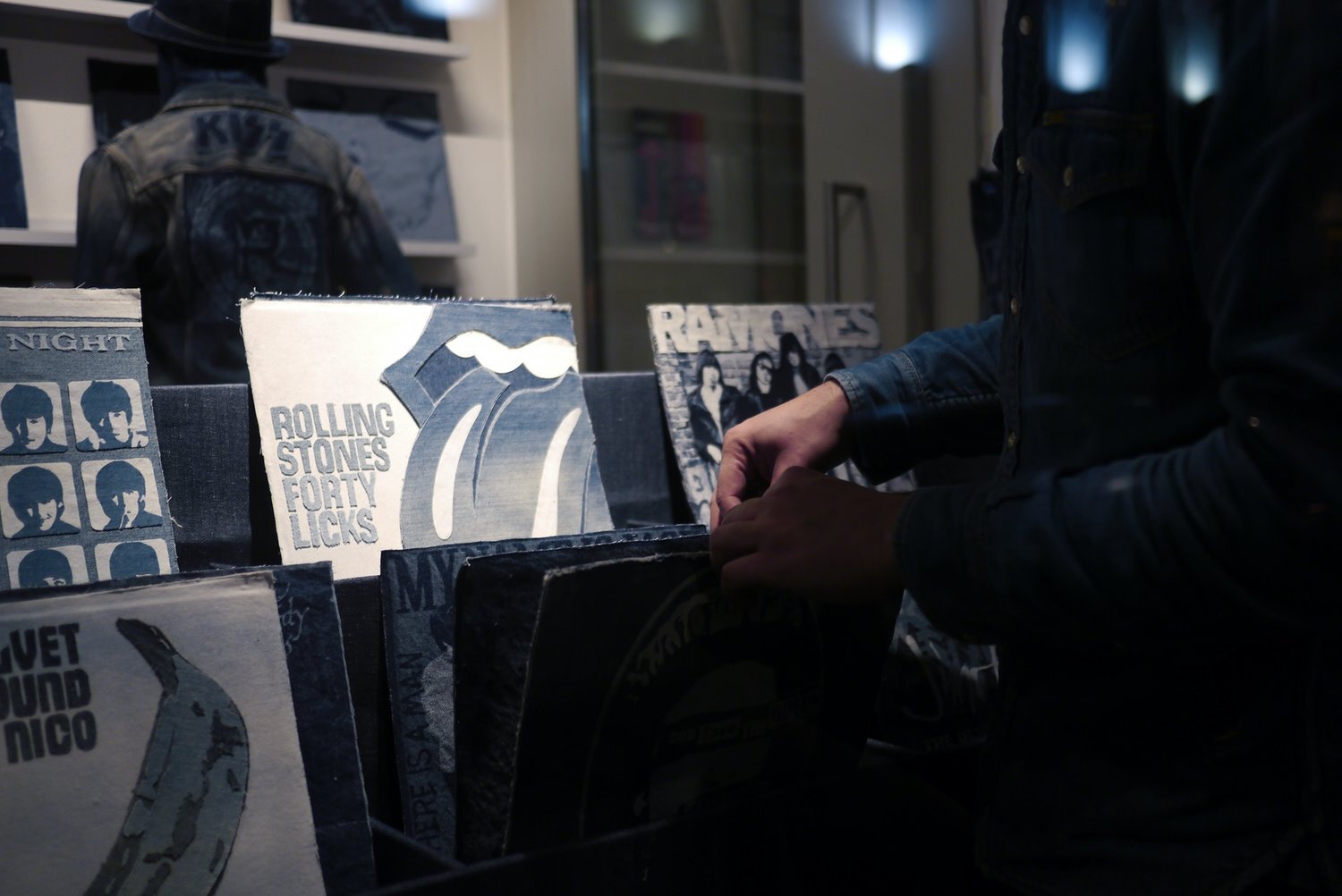
photo | Sadia Rafique
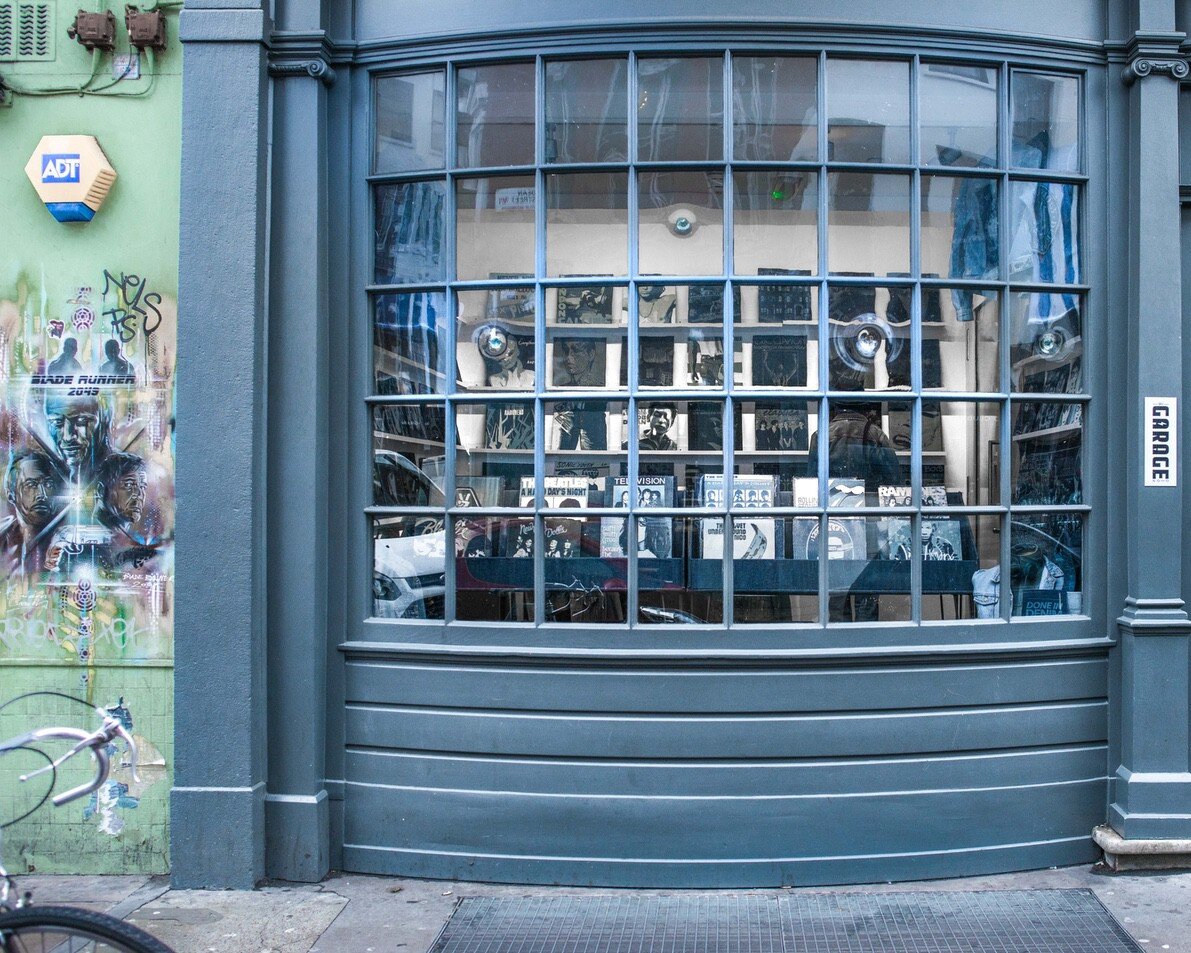
photo | Opal Turner
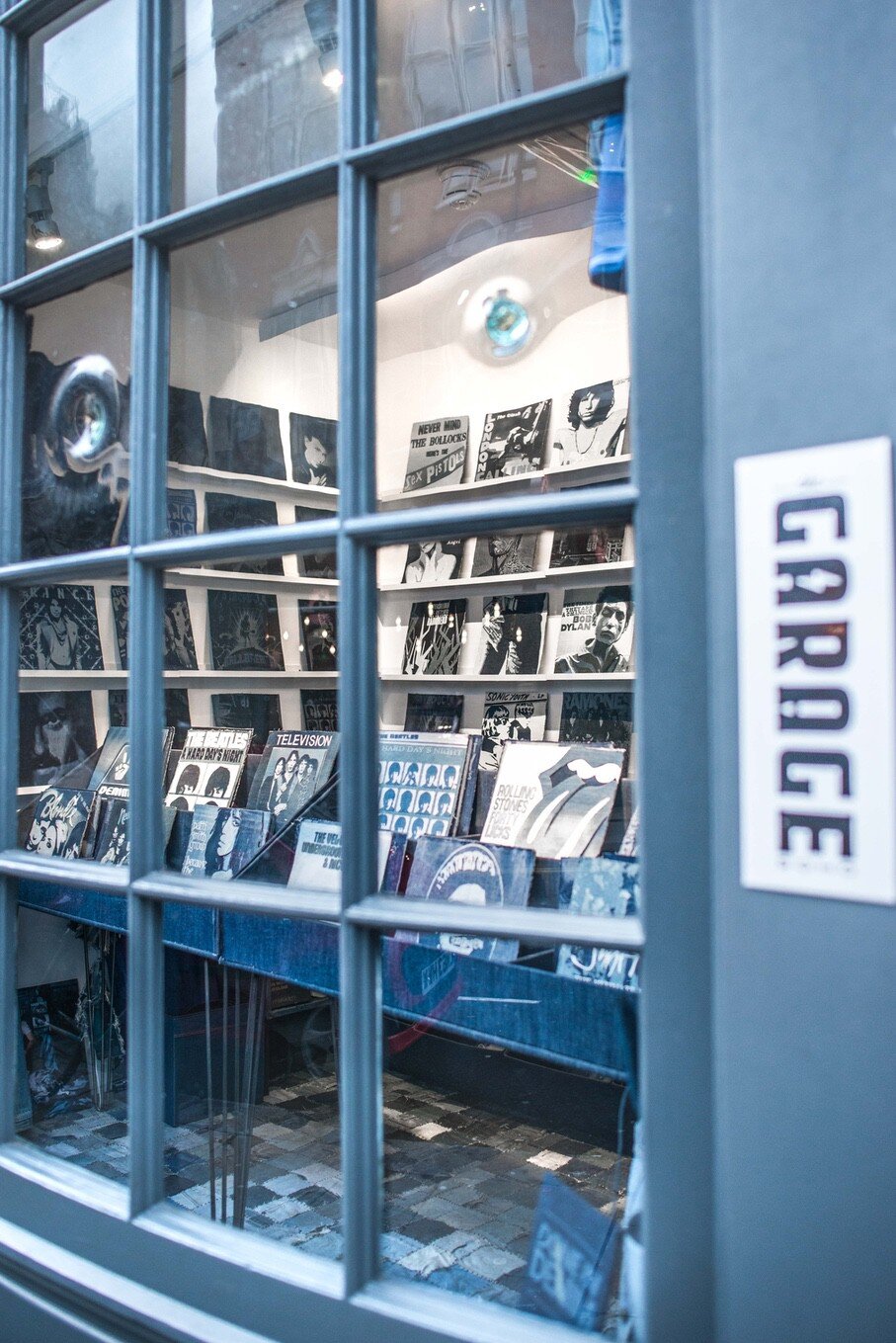
photo | Opal Turner
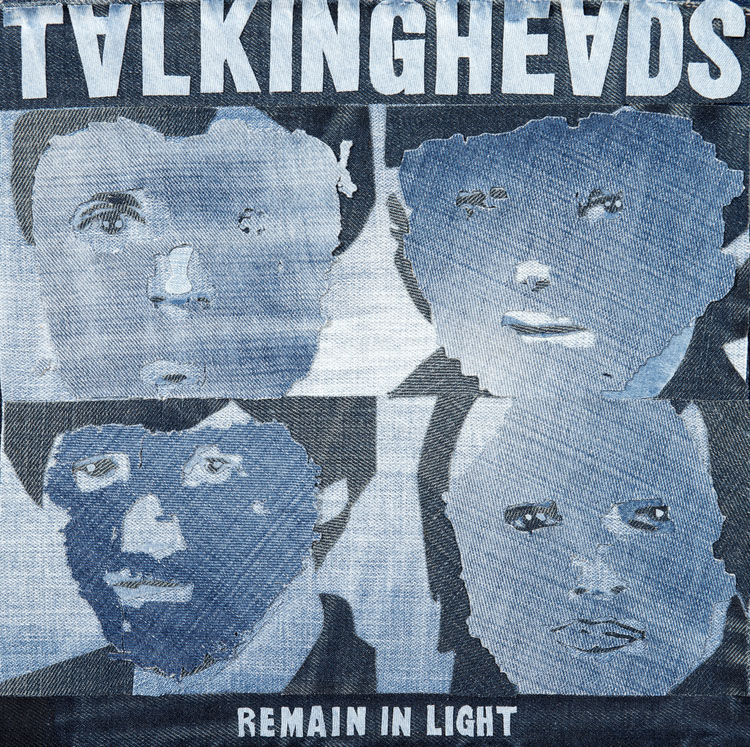
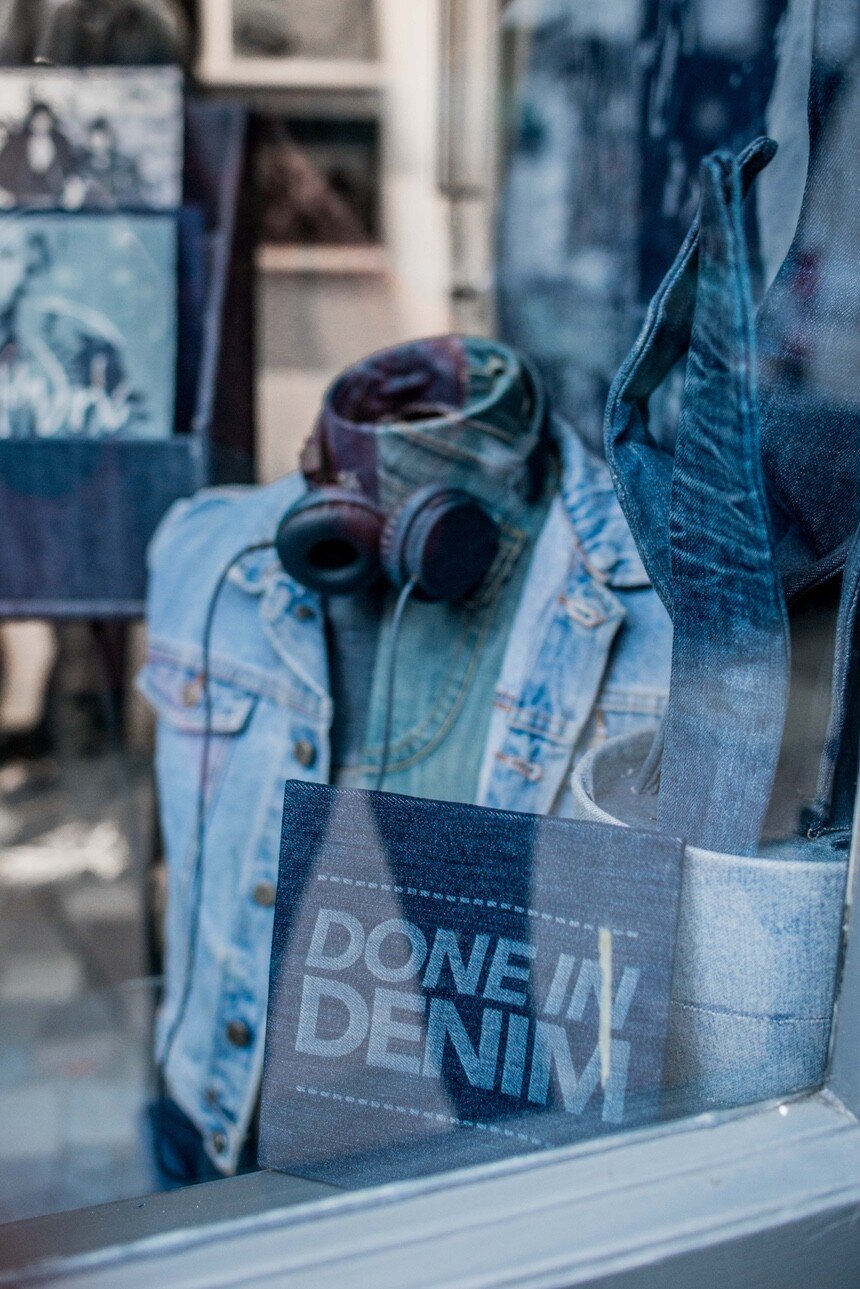
photo | Opal Turner
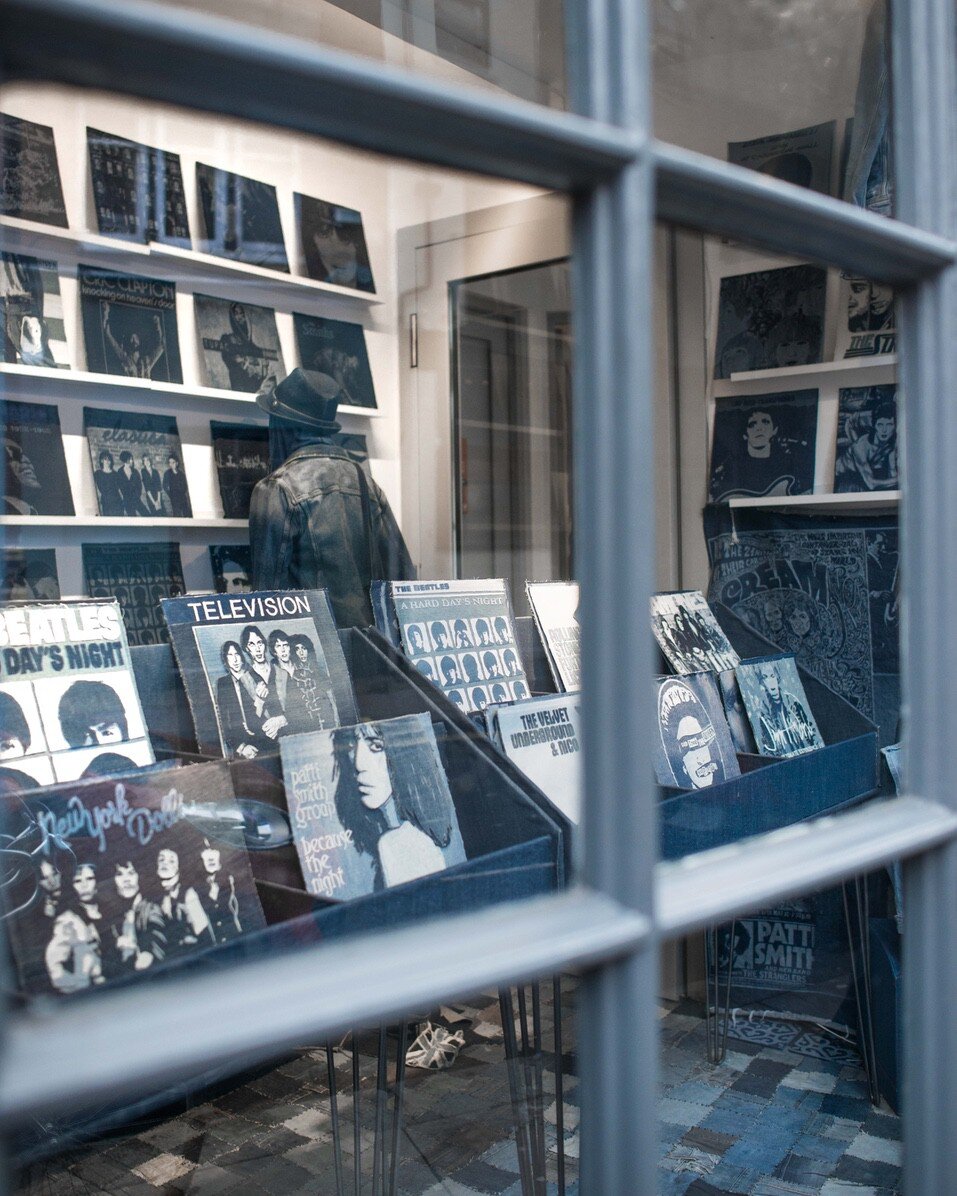
photo | Opal Turner
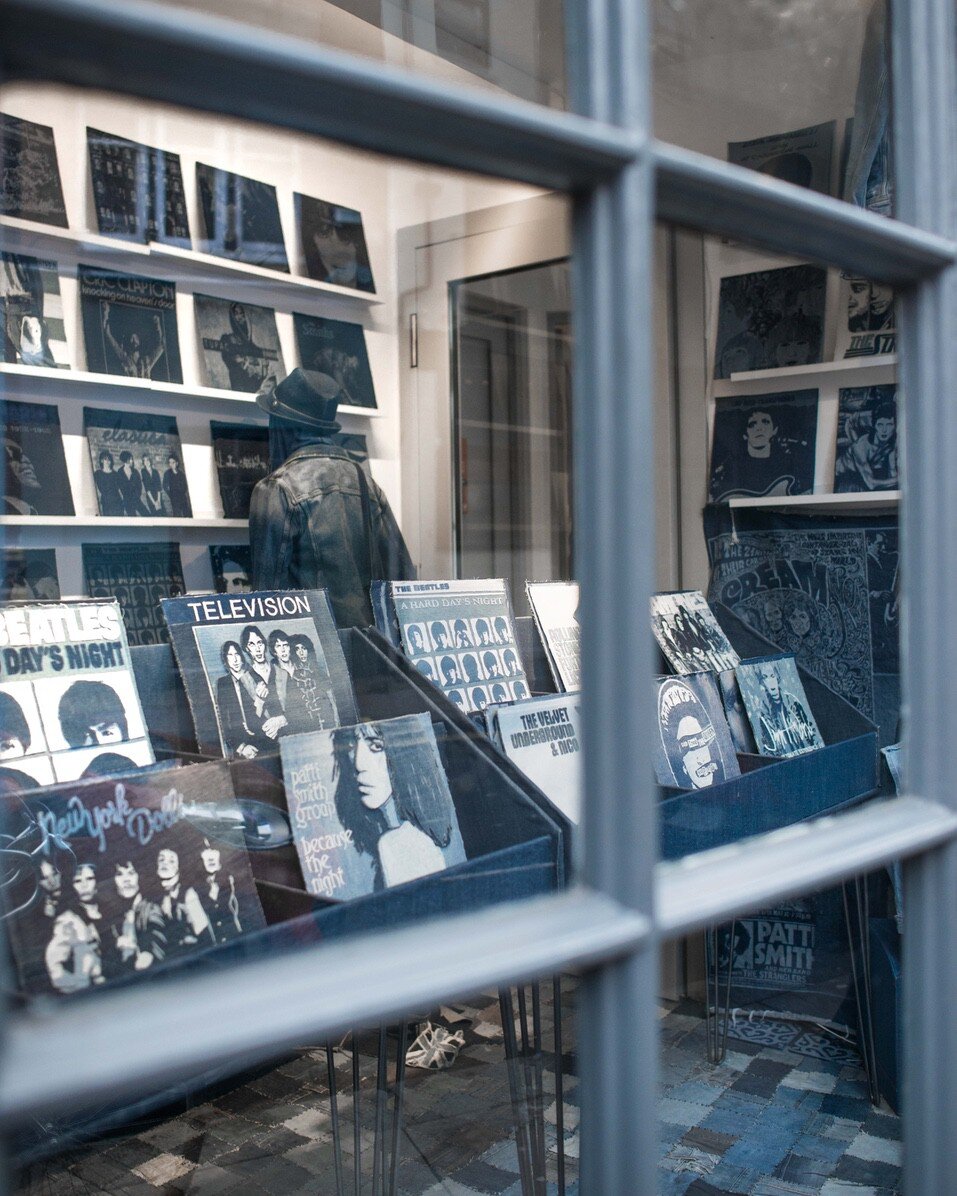
photo | Opal Turner
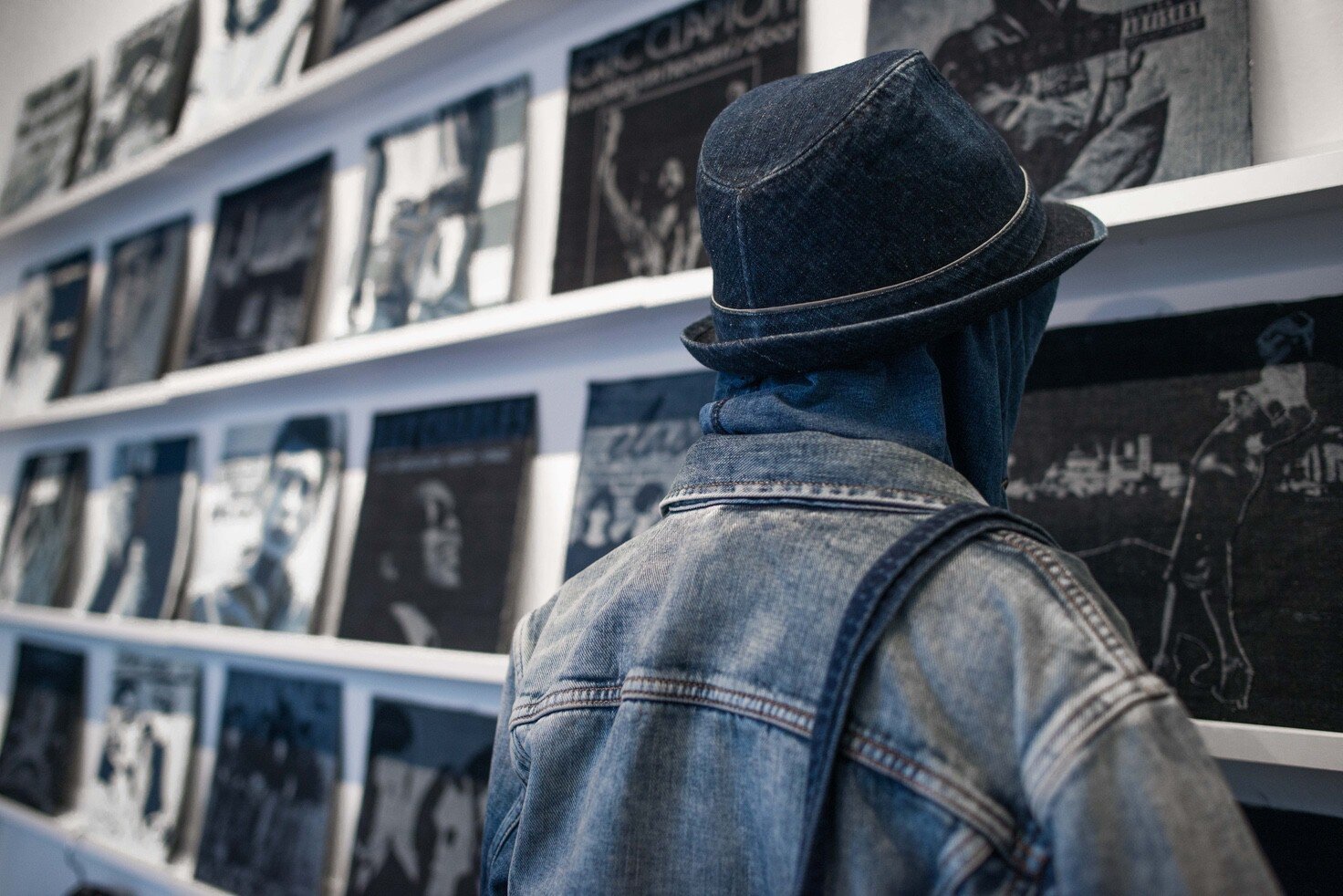
photo | Opal Turner
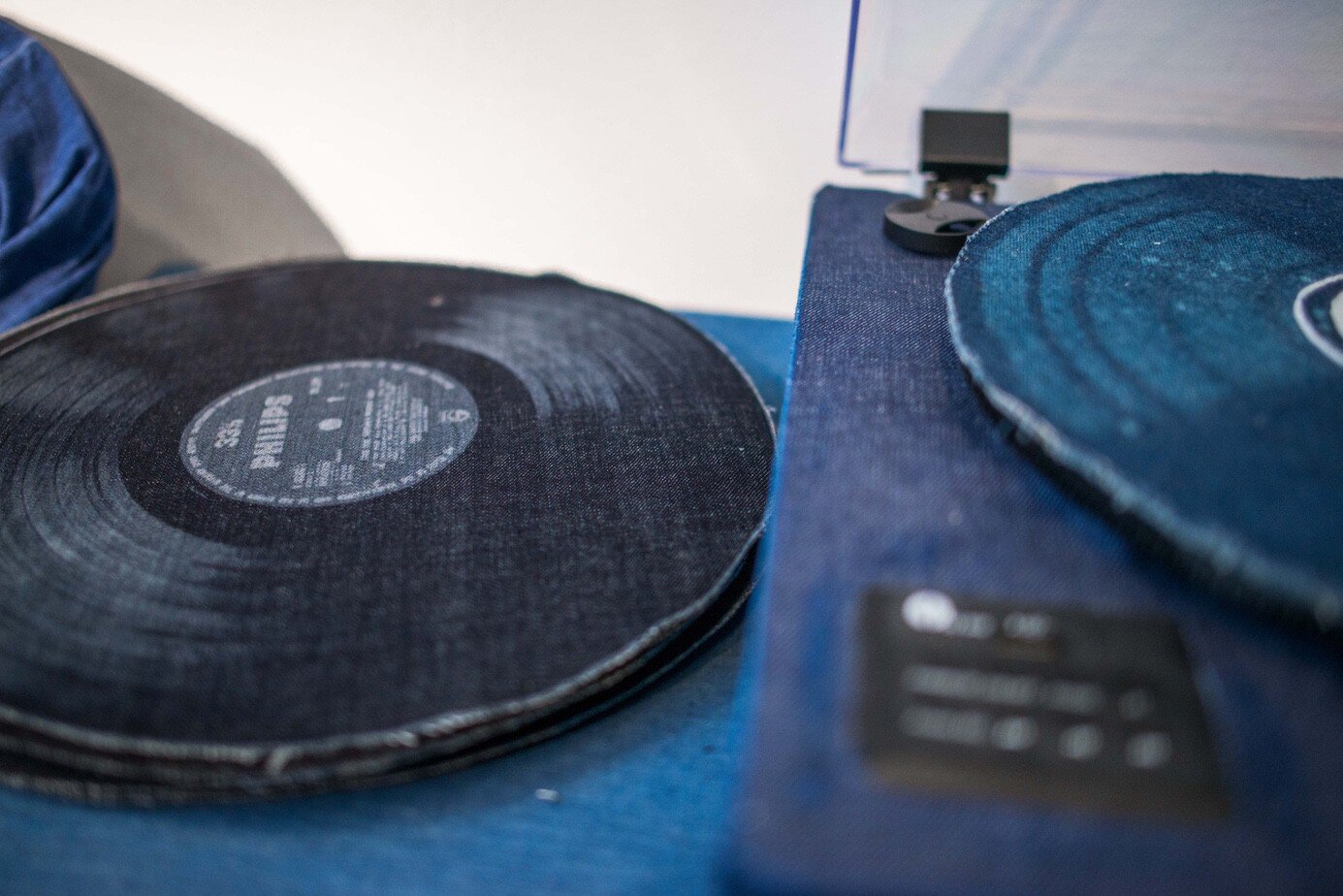
photo | Opal Turner
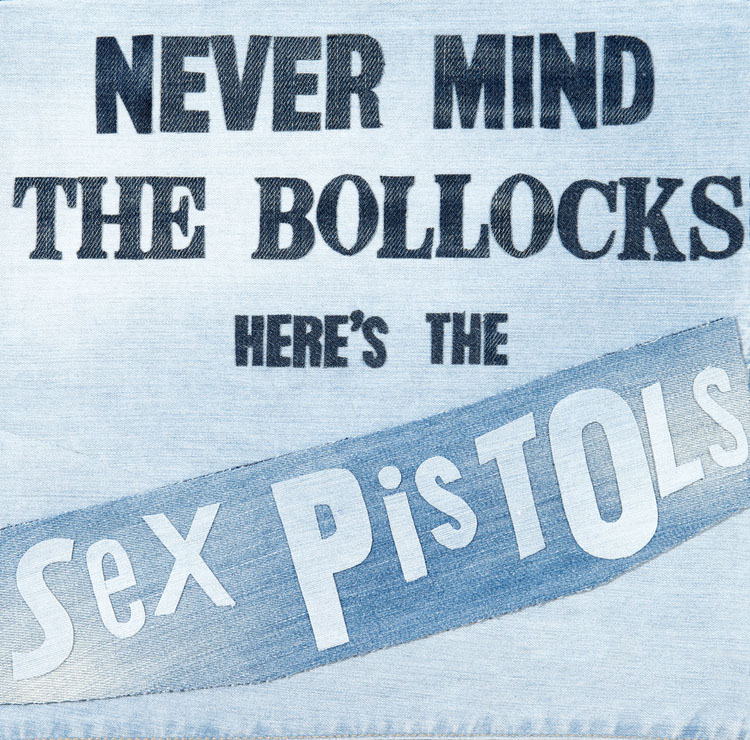
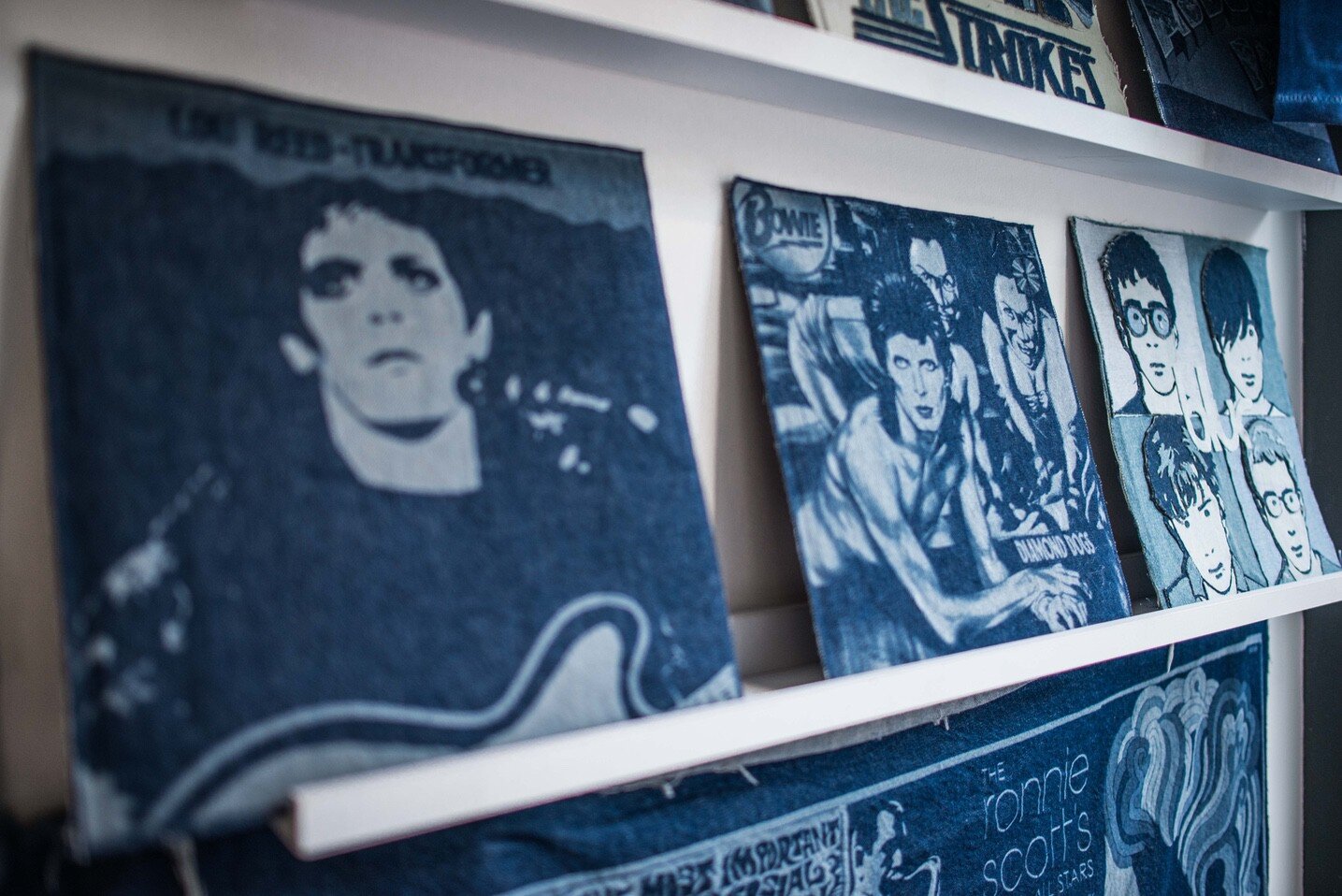
photo | Opal Turner
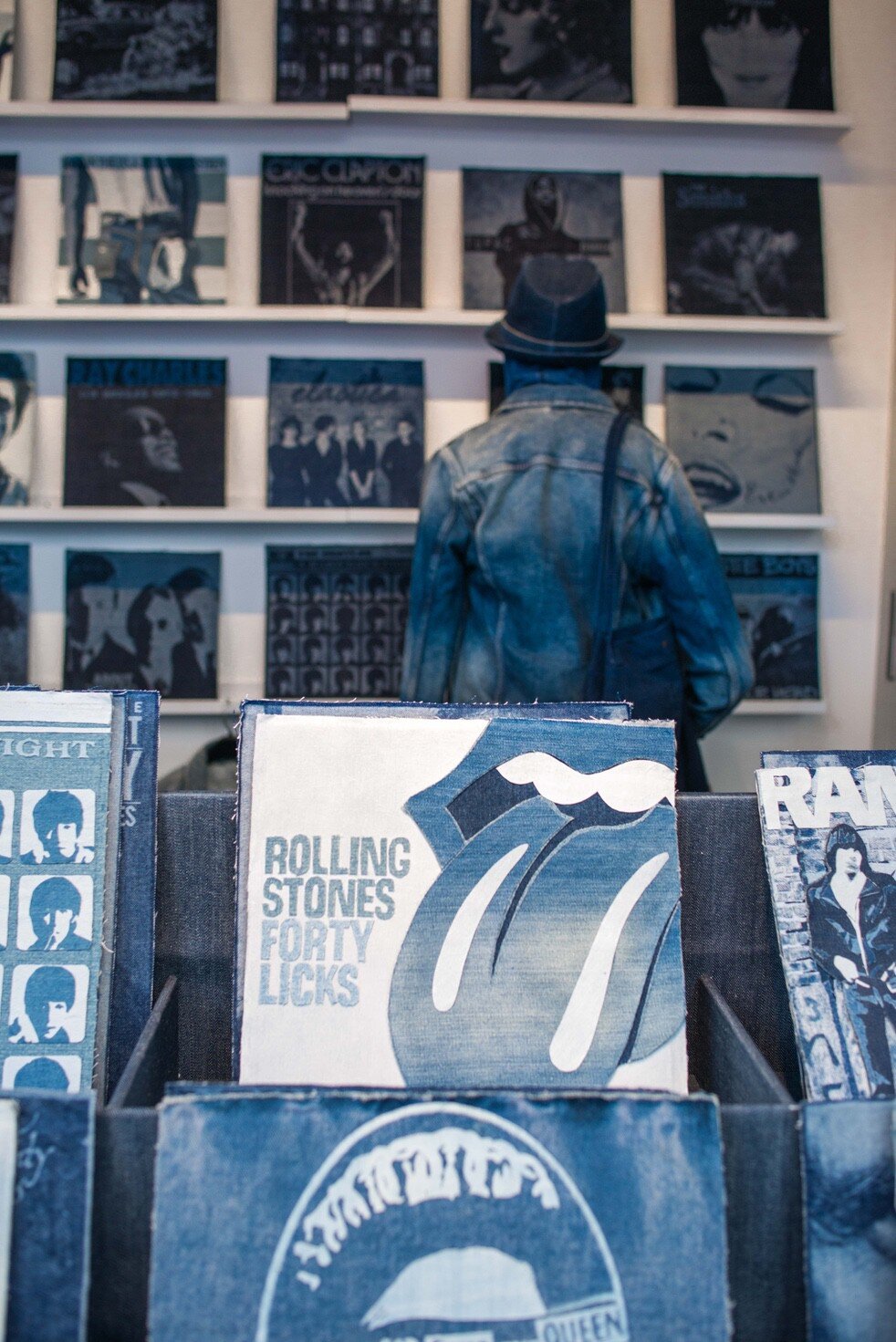
photo | Opal Turner
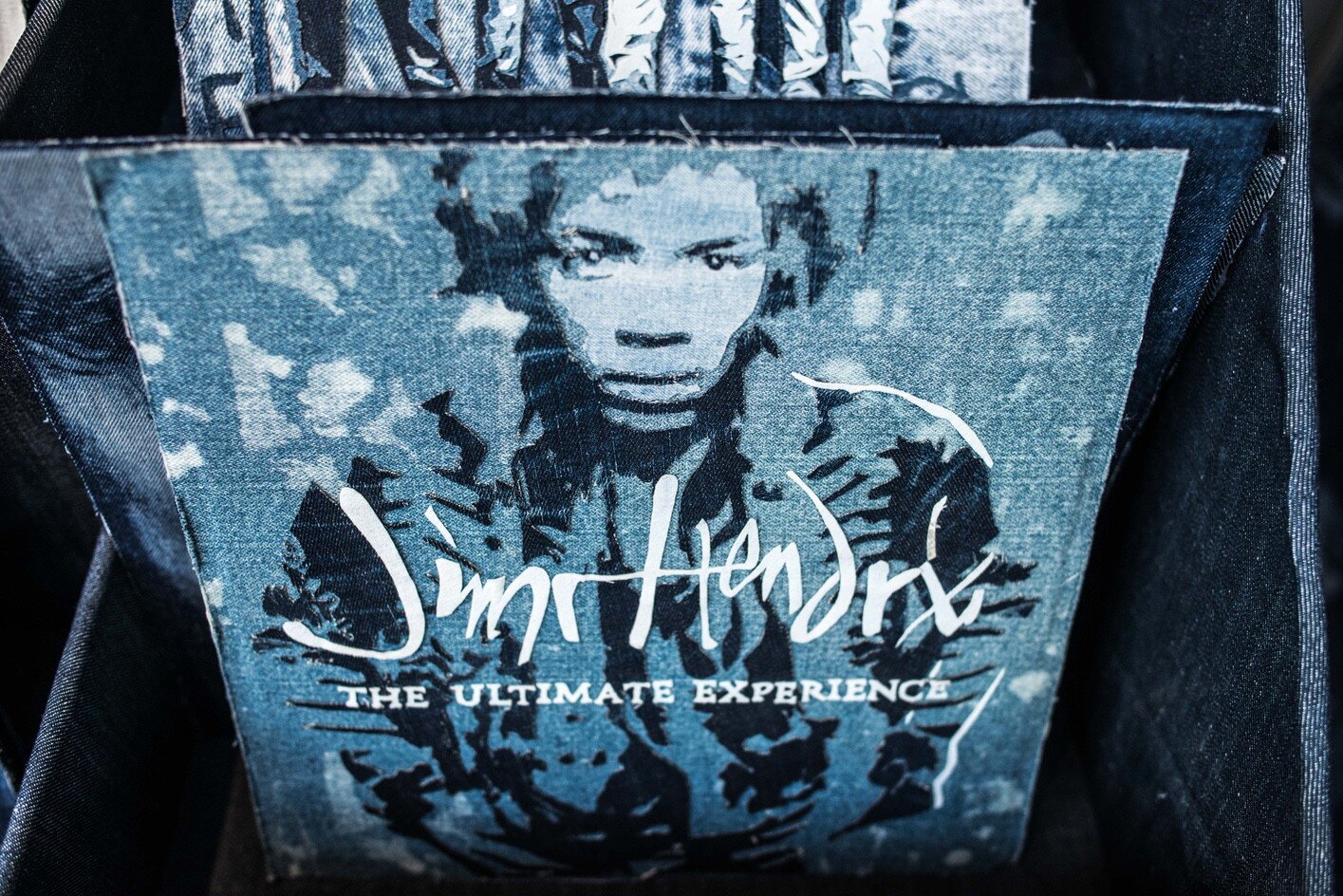
photo | Opal Turner
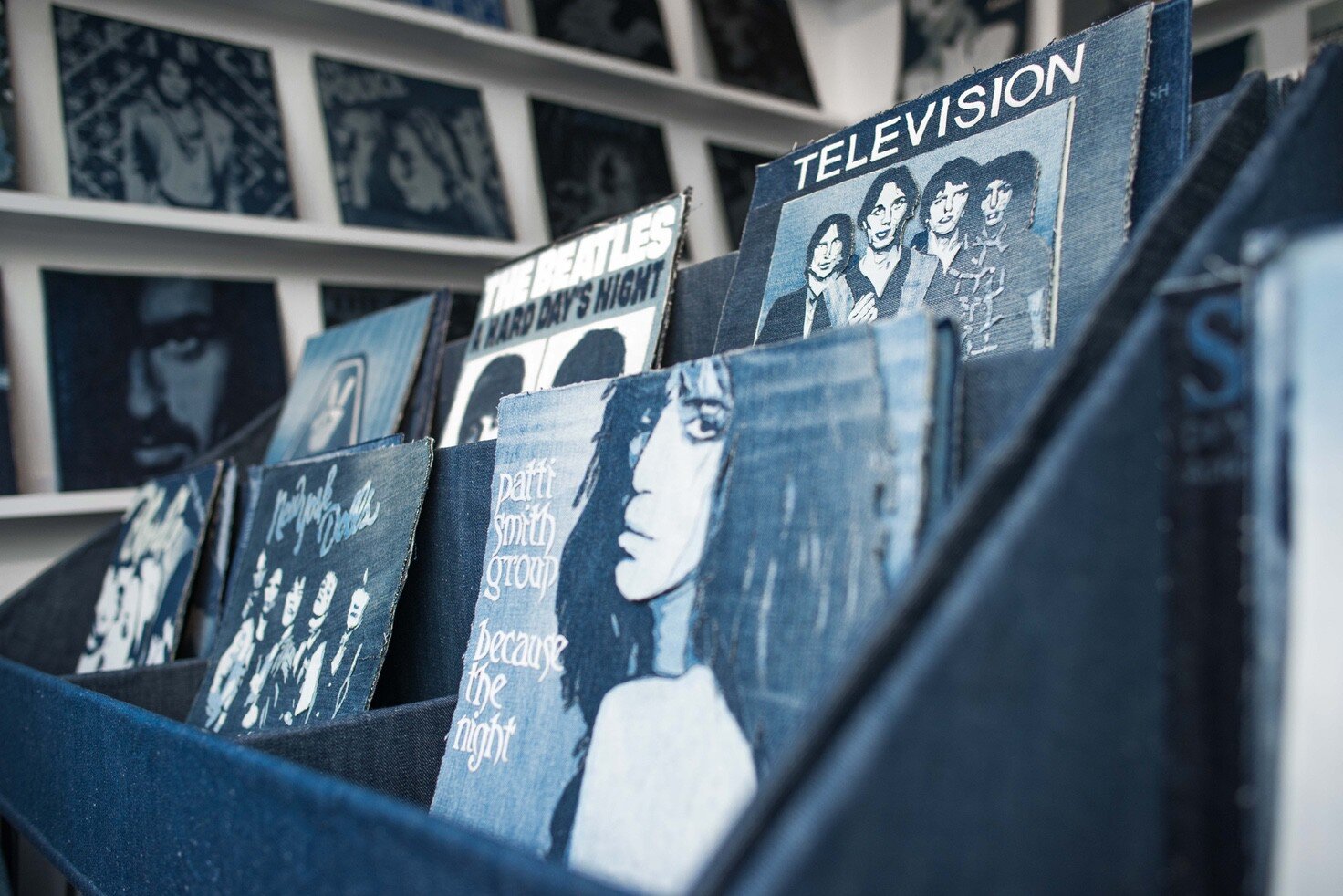
photo | Opal Turner






































The Smallest Gallery in Soho 2017
It’s impossible to imagine rock and roll music without denim. From Elvis to heavy metal, via Dylan, hippies and punk, the pioneers of youth music have always worn jeans. Indeed, some of the most cherished album covers of all time feature this artisan fabric: the Rolling Stones’ Sticky Fingers, and Bruce Springsteen’s Born in the USA to name just two.
It was this link that Ian was particulary interested in not least as it really connected London and New York - the theme of Ian’s 2013 show. “I wish I was alive and in New York around this time, it feels so exciting, and everyone had an attitude of ‘we can do anything.’ They just did, whereas now, people just talk.”
2013
Sometimes, denim has helped define an era. In 1975, for example, the musicians who hung around a New York bar called CBGB started to crop their hair and rip their jeans. The look was spotted by musician and designer Malcolm McLaren, who adapted it into punk, and it changed the world.
It was a bassist, Richard Hell, in the band Television who sparked the onset of punk denim style when he paired his cropped hair with a combination of ripped t-shirts and jeans. This was quickly spotted by Malcolm McLaren, who was over in New York to revive the New York Dolls’ act. Indeed, he was so taken with this distressed aesthetic that he worked with Vivienne Westwood in her King’s Road shop to not only replicate, but also expand it. This experimentation was also carried forward into the next band he managed - The Sex Pistols.
The Doors also began to adopt this style, albeit in a stripped down fashion. Their manager Danny Fields, a mainstay of Andy Warhol’s Factory scene, saw another band, The Ramones, play in a Bowery basement sporting another incarnation of this rapidly spreading ripped denim look.
In the heart of London’s music district this display in Soho.
As well as the simple, ferocious nature of their music and stage presence, he was equally struck by their style: “It was perfect, classic. What better than jeans, a black leather jacket, and a white t-shirt? It’s an easy and enduring look and costume that any kid in the world can create. It’s the way you face the street. It’s male, it’s beautiful, it’s tough and it doesn’t date. Probably 50 years from now people will still be wearing black leather jackets and jeans.”
Warhol said of the fabric: “I wish I could invent something like blue jeans. Something to be remembered for.” Of course, he went on to design the jeans close-up cover for the Stones’ Sticky Fingers album.
With his Record Store installation, Ian Berry celebrates this marriage of denim and rock history. He also makes a personal tribute to the heyday of the vinyl album. The work highlights the struggling retail sector, impacted by the digital download age and recent recession, which has changed the face of music retail on the high street.
His work lovingly recreates a display of classic LPs that had a heavy influence both on what music is today, and denim - from obvious links with bands who used denim in their album cover design, and to Woodstock where it was said:
There were only two ways to look cool at Woodstock: wear your jeans or go naked.
photo | Sadia Rafique
You can see part of the Record Store being put together in this little film in Ian’s studio.
Photo | Brad Rankin
2013
2013
photo | Sadia Rafique
photo | Sadia Rafique
photo | Opal Turner
photo | Opal Turner
photo | Opal Turner
photo | Opal Turner
photo | Opal Turner
photo | Opal Turner
photo | Opal Turner
photo | Opal Turner
photo | Opal Turner
photo | Opal Turner
photo | Opal Turner
